

Survival Catalan Travel Phrase Guide with Pronunciation
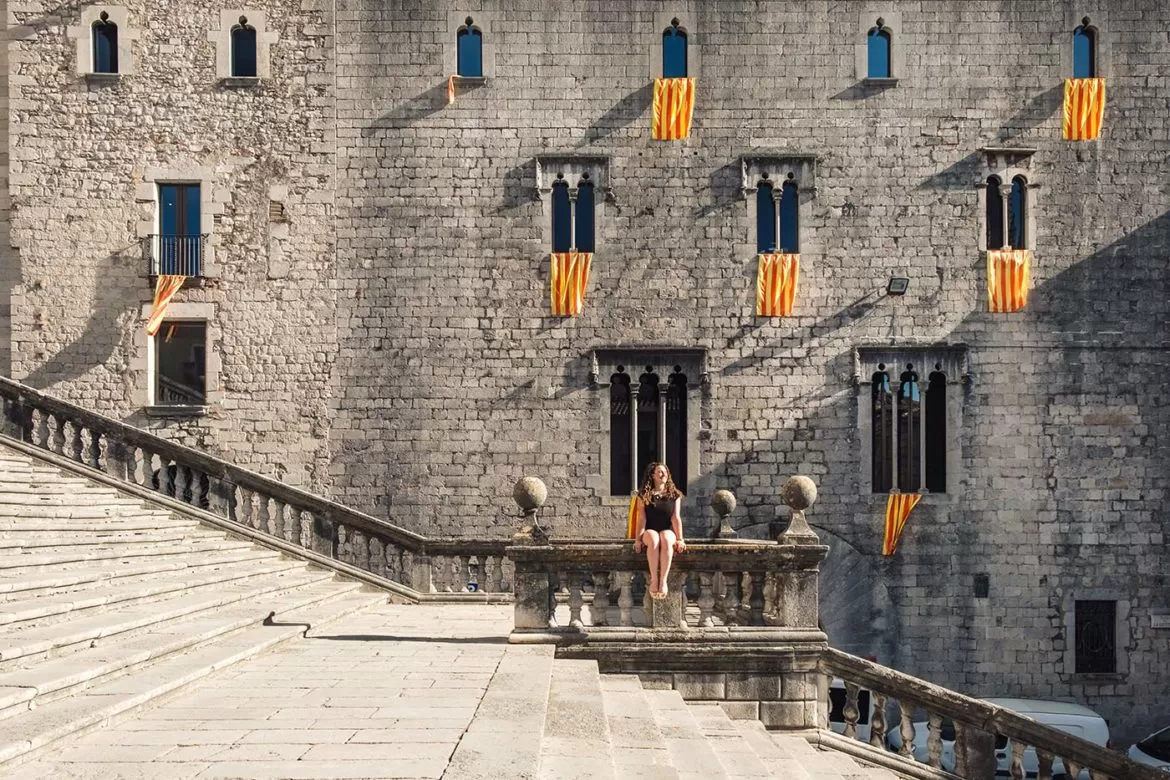
Did you know the region of Catalonia in Spain has its own official language? This simple Catalan travel phrase guide includes a free infographic with useful Catalan phrases and a simple pronunciation guide to take with you in your travels.
Catalonia, located in Spain’s northeast corner, might be part of Spain, but that doesn’t mean you should speak Spanish . Catalonia has its own language, called Catalan, which I strongly encourage any traveller aim to converse in, over Spanish. I’ll tell you why and give you a free and easy to use guide full of useful Catalan Phrases.
There is an on-going heated debate happening in Catalonia where some political agencies and certain factions of the population would like to separate Catalonia from Spain and establish an independent country.
The Catalan language plays a part in this discussion and is used to make the point that Catalonia has its own cultural identity.
Even though Spanish is recognised as a second official language spoken in Catalonia, it can be difficult to know with whom you can speak it.
There is also the misconception that Catalan’s do not welcome Spanish speakers at all, which is not true. Many Catalans still identify themselves as being Spanish and feel proud to be both Spanish and Catalan and at the same time, and equally believe that Catalonia is an integral part of the whole country.
With this in mind, and to avoid ruffling a few feathers, the safest option would be to converse in Catalan or English.
Even though Catalan’s speak Spanish, ensure the other person is comfortable in doing so. This can be a tricky one to manage, but it’s worth keeping in mind.
Catalan’s are very warm people. During both of my experiences in the region, I was met with welcoming smiles and kindness wherever I went, so please don’t feel like you’ll have your head bitten off if you slip into Spanish.
After spending some time in Catalonia’s vibrant capital, Barcelona and a further five days exploring the rugged coastline of Costa Brava , I learned the importance of learning and using Catalan in my travels.
To help you in your travels to this incredibly beautiful corner of the world, I’ve pulled together this guide which includes very simple and useful Catalan phrases. Aiming to slip some of these phrases into your daily interactions with the locals will go a long way.
Want to have fun whilst learning Catalan? Struggling to find decent Catalan language resources? I recommend getting uTalk . Available as a desktop site and app, uTalk is awesome for learning key words and phrases in Catalan, especially if you want to use it for travel purposes. It’s great for beginners getting started in a language and invaluable for intermediates looking to fill in gaps in their vocabulary and pronunciation.
What I love most about uTalk is that you can jump around their extensive library of topics and choose what you want to learn, when you want, and at your own pace. Because I believe in uTalk so much, I reached out to them and we’ve teamed up to offer you an exclusive 30% OFF reader discount across all of uTalk’s 140 languages! This offer isn’t available anywhere else! Click here to claim your exclusive 30% discount.
Let’s take a look at the Catalan language so you’re better informed as to its origin, use, and vocabulary. It’s much simpler than you may think and quite easy to learn.
A brief history of Catalan
Catalan is a Western Romance language which was named after the medieval Principality of Catalonia found in northeastern modern Spain.
Even though Catalan seems like it’s a mixture of French and Spanish , Catalan did not derive from either language. In fact, Catalan evolved directly from Vulgar Latin which explains why it has so many similarities in vocabulary and grammar with French, Spanish and even Italian .
Since all of these branched out from Latin, known as Romance languages, it makes sense that they would share common characteristics.
Where is Catalan spoken?
There are over 9 million people around the world who can speak Catalan. Over 4 million people speak it as a native language or mother-tongue, according to Ethnologue .
Catalan is spoken natively in various parts of Spain including Catalonia, Valencia (where the language is known as Valencian), and the Balearic Islands.
Catalan is spoken in France in the area of the Pyrénées-Orientales.
Catalan is the sole official language of Andorra, a tiny, independent principality located between France and Spain in the Pyrenees mountains.
Catalan even has semi-official status in the Italian commune of Alghero in Sardinia.
Of those who speak Catalan natively, nearly all are bilingual, speaking either French, Spanish (castellano) or Italian, depending on where they live.
Here’s a fun fact: More people speak Catalan than speak Danish , Finnish , Norwegian , Lithuanian, Irish or Albanian. The Catalan regions are greater in area than each of five modern European states – Denmark , Switzerland , Holland , Belgium , Albania.
Catalan Pronunciation
New learners will be pleased to know that Catalan spelling is very phonetic with only a few exceptions. This means that if you know how to pronounce Catalan letters, you’ll be able to sound out the word itself with ease.
You’ll notice that Catalan has many similarities with Spanish , Italian and French , but what makes it easier to learn is that its pronunciation is significantly less complicated compared to that of French or English .
Catalan has three dialectal areas which affect its pronunciation and vocabulary. These include Western (Lleida province and Ebre river basin), Balearic (Balearic islands), Valencian.
While Catalan varies from region to region, the pronunciation guides I’ve included here are based on the standard pronunciation which is similar to what is spoken in the region of Barcelona.
Catalan Alphabet
The Catalan alphabet is basically the same as the English one, except that:
- k and w are found only in foreign words and their derivatives: kàiser, clown, wagnerià
- Except in certain proper names (eg. Nova York, Ruyra) the letter y is found in the combination ny : Catalu ny a, Espa ny a, IIu ny .
Below is the Catalan alphabet.
P.S. If you’re reading this on your phone and can’t see the pronunciation column, turn it to landscape mode. For some reason, tables aren’t mobile friendly. Sorry!
Catalan Travel Phrases
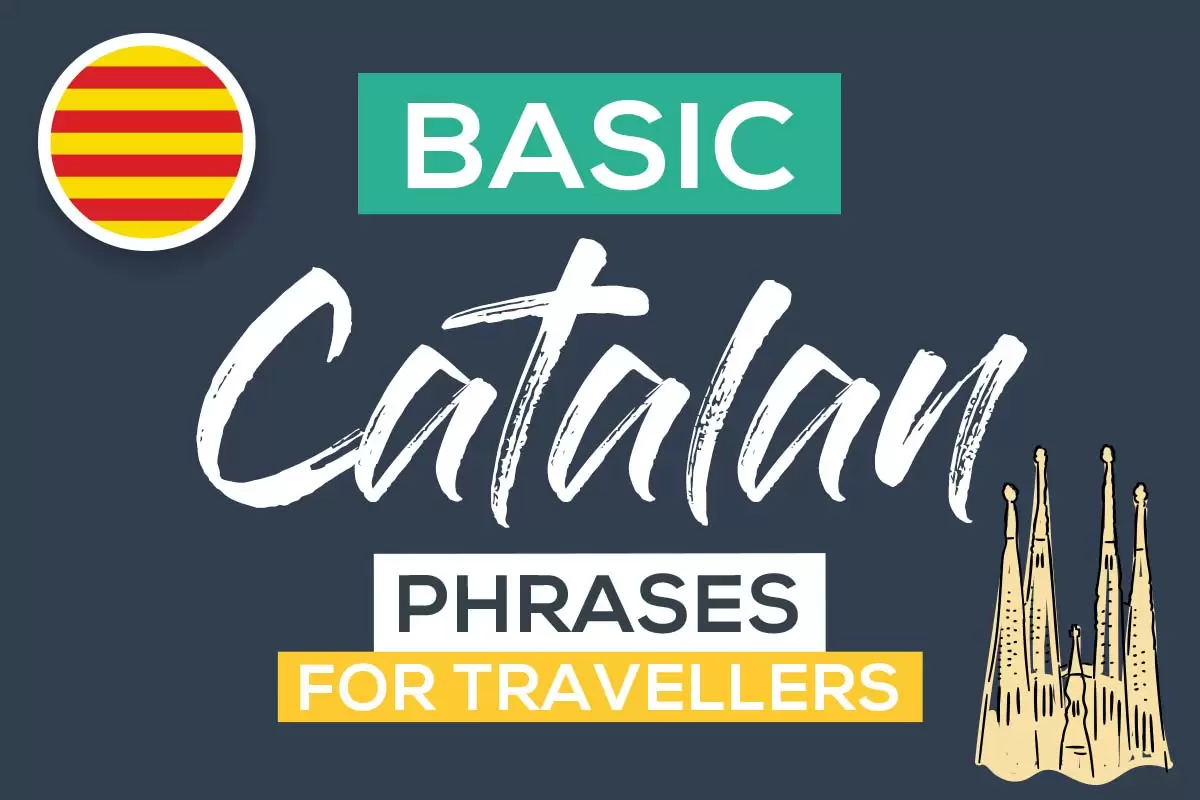
Want the infographic to take with you? Scroll to the bottom of the page.
Greetings Essentials Questions Eating Out Getting Around Numbers Days Emergencies
I hope you enjoyed this Catalan travel phrase guide as much as I enjoyed bringing it together. If you have any requests for other languages, let me know in the comments section! In the meantime, check out my collection of free travel phrase guides.
Like it? Pin it for later!

Sources Teach Yourself Catalan | Barcelona University | Wikipedia
Want to know more about learning languages? Start here!
- Top Language Learning Resources You Should Use
- 11 Life-Changing Reasons Why You Should Learn a Language
- 42 beautiful Inspirational Quotes for Language Learners
- Language learning tips: 11 Polyglots Reveal The Secrets of Their Success
- Top 10 Best Ways to Learn a Language Better and Faster
- How to Learn Italian Before Your Trip
- Free Travel Phrase Guides
- How a ‘Potato’ improved my French Pronunciation
- How Many Languages are there in the World?
- Hilarious Idiomatic Expressions that Will Brighten Your Day
Over to you!
Which of these Catalan phrases did you find the most useful? Are you planning a trip to Catalonia or have already been there? Let me know using the comments section below or join me on social media to start a conversation. Thanks for reading and I hope you enjoyed this post. Like what you see? Subscribe using the form below to have all of my posts delivered directly to your email.
Michele creates language learning guides and courses for travel. What separates her from other instructors is her ability to explain complex grammar in a no-nonsense, straightforward manner using her unique 80/20 method. Get her free guide 9 reasons you’re not fluent…YET & how to fix it! Planning a trip? Learn the local language with her 80/20 method for less than the cost of eating at a tourist trap restaurant Start learning today!
19 Reasons You’ll Want to Visit Costa Brava in Spain Right Now
23 top travel essentials: ultimate travel packing list for backpackers, leave a comment cancel reply.
Save my name, email, and website in this browser for the next time I comment.
This site uses Akismet to reduce spam. Learn how your comment data is processed .

If you don't know where you are , how do you know where you're going? Find out how well you know Italian grammar today!
Fem enviaments a tot el món 🚀
Col·lecció CATALAN LOVERS ja disponible ❤️🔥

Ítem afegit a la meva cistella
30+ essential catalan phrases and expressions you need to know..
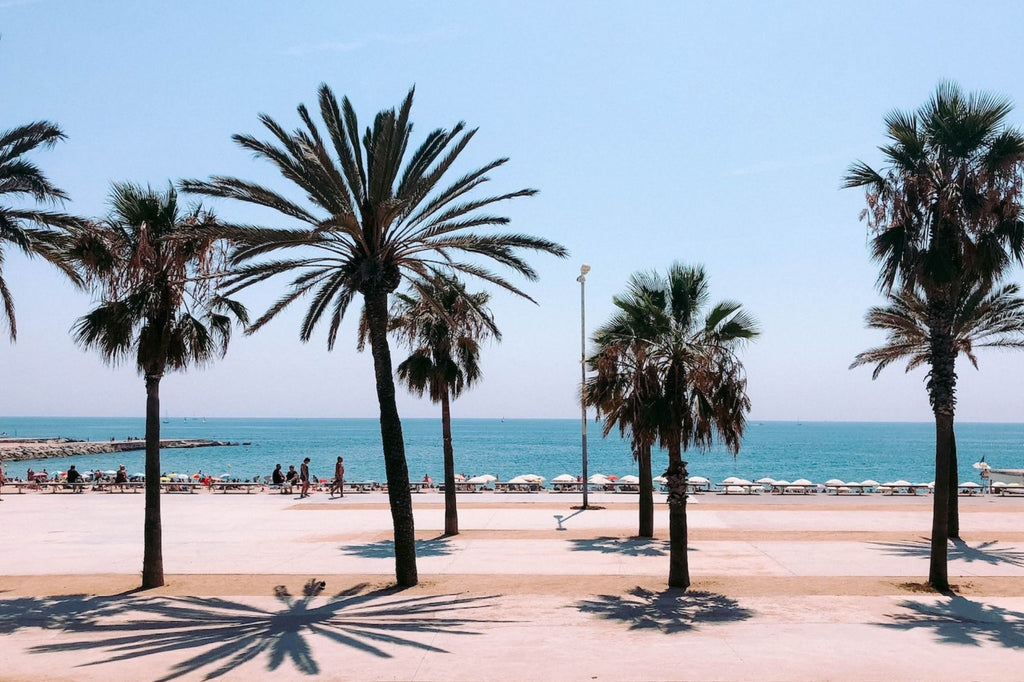
Whether you're an expat who once came to Catalonia and never left (ohh aren't we lovely), or a tourist who's visiting Barcelona and its surroundings for just a few days, Catalan people will love to hear you speaking - or at least trying - some Catalan.
Here are some of the most useful Catalan words, phrases, and expressions that will help you get started.
And don't forget to check out our Online Shop filled with products with some amazing Catalan words!
- Hello - Hola
- Goodbye - Adeu
- See you later - Fins després
- See you soon - Fins aviat
- Good morning - Bon dia
- Good afternoon - Bona tarda
- Good evening - Bon vespre
- Good night - Bona nit
Being Polite
- Please - Si us plau
- Thank you - Gràcies or Merci
- Thank you very much - Moltes gràcies
- You're welcome - De res
- I'm sorry - Ho sento
Making friends
- How are you? - Com estàs?
- It's nice to meet you - Molt de gust
- What's your name? - Com et dius?
- My name is Marta - Em dic Marta
- Where are you from? - D'on ets?
- Would you like a drink? - T'agradaria beure alguna cosa?
- Let's meet up later? - Quedem després?
- Cheers! - Salut!
For foodies
- I'm hungry - Tinc gana
- I'm thirsty - Tinc set
- A table for two please - Una taula per dos si us plau
- The menu - La carta
- A glass of wine - Una copa de vi
- Beer - Cervesa o Canya
- Bon appetit! - Bon profit!
- That was delicious! - Estava boníssim!
- The check, please - El compte, si us plau
- The tip - La propina
Are there any other Catalan words, phrases, or expressions you'd like to learn? Please let us know in the comments below! 👇
If you liked this article, you might also enjoy reading ' 18 Ways To Say 'I Love You' In Catalan '. 🤍
10 comentaris
Hi again! I forgot to mention it here, but the Catalan girl whom I wanted to ask out and I are now dating 🥰 Estic molt enamorat 😚
P.s: I’m the same Chris who posted a comment here back on Jan 10!
I would be direct and say: ‘l’altre dia vaig escoltar una cançó a la ràdio que es deia ‘Boig per tu’ i em vas venir al cap. Quedem per fer un vinet i m’ajudes a entendre la lletra?’ . Good luck! Please report back on your progress.
Hi Chris, it’s so sweet that you want to use Catalan words ❤️ That’s a good point! You can use a simple “ t’agradaria anar a prendre alguna cosa /al cinema / al teatre junts?” Or “ t’ agradaria que ens veiéssim algun dia per anar a sopar/ dinar/ passejar/ cinema ? “ sort!!!!
Hi Chris! You can simply say to her ’t’agradaria anar a prendre alguna cosa amb mi?’ 👏
I want to ask out a Catalan girl who I really like… can you recommend me a sweet way to do it in Catalan? 🙈😊
Deixa un comentari
Basic Words and Phrases in Catalan
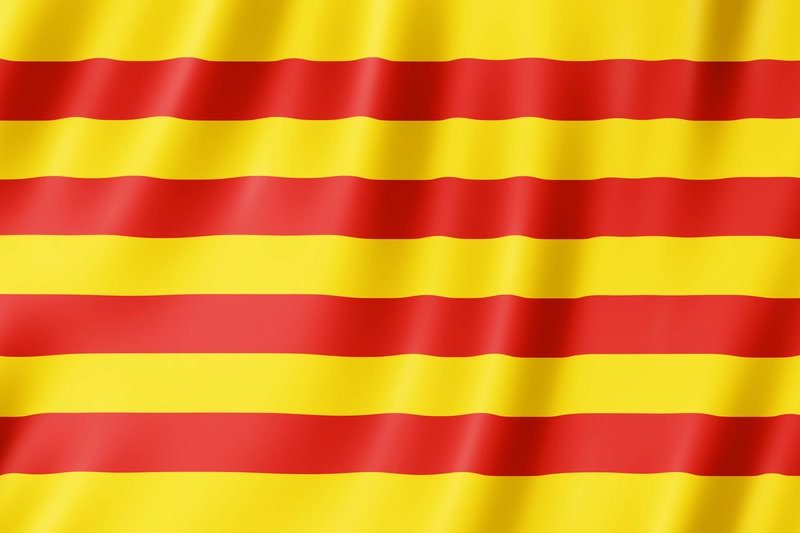
Exploring Catalonia is an incredible experience, and learning a bit of Catalan makes it even better. Walking through the lively streets of Barcelona, enjoying the Costa Brava, or visiting the historic sites in Girona, knowing some basic Catalan phrases can help you connect with locals and enhance your trip. Catalan is a language that reflects the region's rich culture and history. Here are some key Catalan words and phrases to help you get around and make the most of your time in Catalonia.
About Catalan
Catalan is a Romance language spoken mainly in the Catalonia region of northeastern Spain, as well as parts of France, the Balearic Islands and Valencia. It is also used by Catalan-speaking communities around the world. Catalan is of Vulgar Latin origin and shares similarities with other Romance languages such as Spanish, French and Italian. It has its own unique grammar and vocabulary. Catalan uses the Latin alphabet with some additional characters and diacritics. It has a rich literary tradition that is an integral part of Catalan culture and identity and strives to preserve and promote the language.
- Basic Words and Phrases
Learning a foreign language opens up a world of opportunities, allowing you to connect with people from different cultures and expand your horizons. Whether you're planning a trip or simply curious about a new language, mastering some basic words and phrases is a great place to start.
Greetings are an essential part of any language. Saying "hello" and "goodbye" can create an instant connection with native speakers. In many languages, "hello" is a universal term, but learning the specific greeting for the language you're interested in can show respect and appreciation. Similarly, learning how to say "goodbye" will help you leave a positive impression.
- Conversations
Next, let's explore basic conversation starters. Asking "how are you?" or "what's your name?" in another language is a friendly way to engage with others. These simple phrases can pave the way for more meaningful conversations and help you build rapport.
When staying at a hotel in a foreign country, it's helpful to be familiar with some phrases that can assist you during your stay. Here are a few key phrases you can use in a hotel.
When dining at restaurants in a foreign country, it's helpful to know phrases that can assist you during your meal. Being able to request a table, order food and drinks, and ask for the bill are important for a pleasant dining experience.
- Food and drinks
Being able to order food and drinks, ask for recommendations, and express preferences or dietary restrictions will enhance your dining experience and allow you to explore the local cuisine.
- Places and Services
Just like how saying hello helps you connect with others, exploring phrases related to locations and services can greatly enhance your travel experience. Whether you're looking for important places like banks or post offices, these expressions can open up doors to immersing yourself in the local culture.
Knowing how to ask for the price, request a different size or color, or simply say "I'm just looking" can be useful when shopping in local markets or stores.
Learning phrases related to asking for directions, understanding common landmarks, and getting around the city will help you navigate unfamiliar places with ease.
Familiarizing yourself with phrases for using public transportation, such as asking for a ticket, stating your destination, or inquiring about schedules, will make your travel experience smoother and more efficient.
- Emergencies
When you're in a different country, it's really important to be aware of emergency phrases such as 'help,' 'hospital,' and 'police.' Using expressions like 'emergency' and 'I need help' can help you overcome language barriers and make sure you're ready for any unexpected situations that might occur. Having a good grasp of these phrases will help keep you safe and give you peace of mind while traveling.
Effortlessly asking and telling the time enhances your travel experience, from coordinating schedules to catching transportation, adding a valuable layer to your linguistic toolkit for effective communication during your stay.
Learning numbers is essential for tasks like counting, ordering quantities, or understanding prices.
- Ordinal Numbers
Ordinal numbers play a crucial role in conveying sequence and order. Whether you're navigating travel itineraries, selecting seats, or exploring historical sites, understanding expressions like 'first,' 'second,' and so on is essential.
- Days of the week
Knowing the names of the days of the week will help you schedule activities, make appointments, or plan your itinerary.
Being familiar with the names of the months will allow you to discuss dates, make reservations, or talk about specific time frames.
- Question Words
Understanding basic question words like who, what, where, when, why, and how will enable you to ask for information or clarification in various situations.
I am Abdulaziz from Saudi Arabia. I want to learn the Catalan language
Opal Rodarte
I noticed that your roamingwithrainier.com website could be missing out on approximately 1,000 visitors daily. Our AI powered traffic system is tailored to increase your site's visibility: https://cutt.ly/cel2C5m7 We're offering a free trial that includes 4,000 targeted visitors to show the potential benefits. After the trial, we can supply up to 250,000 targeted visitors per month. This opportunity could greatly enhance your website's reach and traffic.
Leave a Comment
Your email address will not be published. Required fields are marked *
Abbreviations used
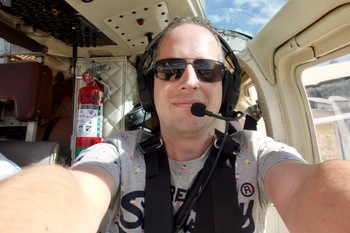
Hey there! I'm Rainier and I'm the person behind Roaming with Rainier. I've always been really into traveling and photography. I've been fortunate enough to visit incredible destinations and there are still so many more on my bucket list. My plan is to explore breathtaking places around the world and share my experiences through articles and reviews.
Read the full story
Sign up for my newsletter to stay informed about the best travel destinations.
Other Romance Languages
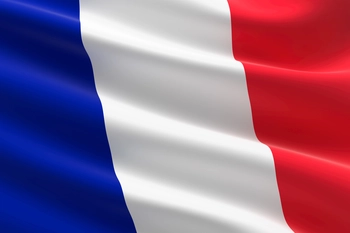
Things to do in Barcelona

- 50 Useful Spanish & Catalan Phrases for Visiting Barcelona
by Christian Heide | May 16, 2024 | Barcelona | 0 comments
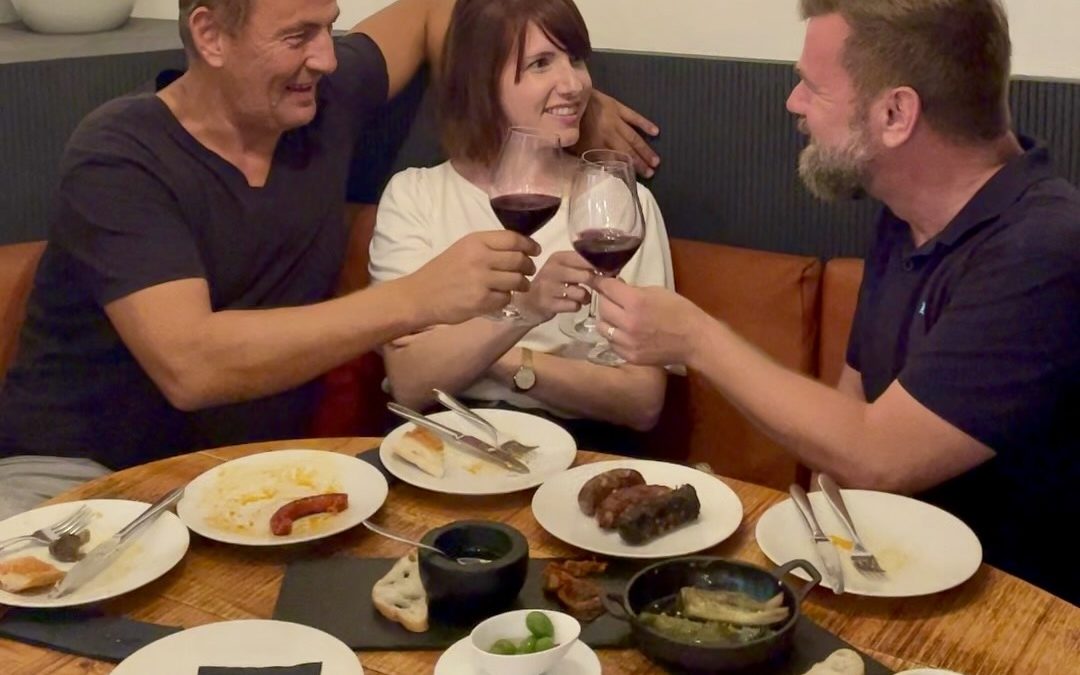
Last Updated on May 16, 2024 by Christian Heide
If you’d like your stay in Barcelona to be an amazing adventure… you may run into situations where knowing Spanish is essential.
You’ll have no trouble getting tickets to see the highlights of Catalan Modernism like the Sagrada Familia , Park Güell or the Palau de la Música Catalana .
- But what if you love hidden cafés?
- What if you’d like a day trip into the hills?
- What if you love meeting new people?
The native language of Catalonia is Catalan. But everyone will speak Spanish and you’ll have no problem speaking it. But just in case we’ve included a Catalan translation alongside the 50 Spanish phrases below.
If you’re interested in enhancing your stay then don’t forget to check our guided Barcelona tours here.
If you’re ever interested in taking Spanish courses in Barcelona then do check out our friends Speakeasy BCN – they provided us with these phrases and have a lovely school in the heart of the city, in Plaça Catalunya.
Useful Spanish & Catalan Phrases for Travelling in Barcelona
Below you’ll find 50 useful Spanish & Catalan phrases to have at hand for your upcoming trip to Barcelona. You can memorise them, print them out, or bookmark this page on your phone to take with you.
Basic Spanish & Catalan Greetings
These are the most common and useful phrases when greeting people, or saying goodbye.
Ps & Qs in Spanish & Catalan
It’s nice to be polite. While people don’t say ‘please’ as much in Spanish and Catalan as English-speakers may be used to…these are important phrases to know.
Being Understood in Spanish & Catalan
After the formalities, these phrases below will come in handy if you need to start an extended conversation with someone.
Getting Directions in Spanish & Catalan
Use these phrases when off the beaten track. They’ll help you get where you want to go and avoid getting lost!

Ordering Food & Drink in Restaurants/ Cafés in Spanish & Catalan
You’ll use your Spanish and/or most often when in restaurants and cafés. Especially if you are visiting non-touristy places in Barcelona and surroundings.

Visiting Cultural Attractions/ Sites in Spanish & Catalan
The following phrases will help you buy tickets, sightseeing and getting out and about while in Barcelona.
Ready to Make the Most of Your Time in Barcelona?
Barcelona is one of the top 3 most-visited cities in Europe. It gets more visitors than Madrid or Valencia or Sevilla, making it Spain’s top city for tourists.
But this means certain areas in Barcelona are overcrowded with visitors.
If you want a more authentic experience then you only need to walk a few streets back from the busy streets. Or take a day trip. Or discover hidden parts of the city.
But…you’ll find that the further you are from touristic areas the more you will need Spanish to get around. Learning the 50 phrases in this blogpost will help you make the most of your time in Barcelona. We recommend you bookmark it on your phone or drop it into a family or group WhatsApp chat in case you need it.
And don’t forget!
A private walking tour is one of the best ways to discover the hidden gems of Barcelona. The Barcelona Feeling has taken more than 4,000 visitors on an adventure through the Catalan capital since 2018 – either in person or on a virtual trip.
Will you be our next guest?
Click here to check out our private tours currently available.
Recent Posts
- Top 5 day trips from Barcelona
- Catalan Modernism
- Barcelona Off The Beaten Path
- The unique Architecture of Casa Vicens, Gaudí’s First Masterpiece

Catalan Language
Learn more about barcelona’s native lingo.
Welcome to our beginner’s guide to Catalan, with some handy phrases and vocabulary for travellers.
Put away the Spanish dictionary mi amigo, because if you want to get along with the notoriously nationalistic folk of Catalonia (Catalunya) you’ll find a few choice Catalan phrases a sharper weapon in your armoury of charm.
Yes, the Barcelonins are very protective about their beloved Catalonia, which they regard as a separate country to Spain (and needless to say a superior one!), and although you will get by just fine in Spanish you’ll certainly pull away from the crowd with a few choice Catalan phrases up your sleeve. With that in mind Barcelona Life has thrown together some handy greetings, words and expressions that will undoubtedly prove your passport into the locals’ hearts and affection.
But first a little introduction. Catalan is an entirely separate language to Castilian Spanish , and not just a separate dialect as many assume. It is spoken by around 9.5 million people: as well as 6 million speakers from Catalonia, 2.5 million Valencians speak a regional version of the language, whilst Catalan is also the preferred tongue of residents of the Balearic Islands and the official language of Andorra.
Those who were forced to learn latin at school will be pleased to have a small grounding in Catalan already, as it is a so-called Romance language derived from Cicero and chums. For modern speakers, think of a mix of Spanish and French with a bit of Italian thrown in and you’re half way there.
Here are some phrases and beginners’ vocabulary to get your tongue around, below. Meanwhile, if you’re keen on learning some Catalan then head to our page on Catalan and Spanish language schools in Barcelona for some suggestions on where to study.
A rudimentary knowledge of Catalan is certainly helpful in getting around Barcelona , as most addresses and road signs are written in Catalan not Spanish. Particularly helpful to know is that carrer = road (calle in Spanish), plaça = square (plaza in Spanish), passeig = passage (paseo in Spanish) and avinguda = avenue (avenida in Spanish). Entrada and sortida are entrance and exit, no fumeu means no smoking and obert and tancat mean open and closed respectively.
Keep reading for our beginner’s guide to Spanish !
Related Reading
Spanish Phrasebook
Catalan Food
Barcelona Culture
Discover Catalonia
Montserrat Tours
Travel Tips
cancel reply
Save my name, email, and website in this browser for the next time I comment.
Stay in touch
Love Barcelona? Subscribe to our newsletter and we'll share our latest stories, events you shouldn't miss, deals, discounts and much more! It's free.
Check your inbox or spam folder to confirm your subscription.
We also share stories and events on Facebook .
- Job Opportunities
- Privacy, Legal and T&Cs

Experience Barcelona Like a Local: 10 Catalan Phrases to Add to Your Repertoire
- Barcelona , Spain
Barcelona is the capital of Catalonia, a region in the northeastern part of Spain with its own distinct culture, history, and language. Catalan, which is spoken by a majority of people in Catalonia, is a Romance language with its own unique vocabulary, grammar, and pronunciation. While many people in Barcelona also speak Spanish, Catalan is the primary language used in the region and it’s a good idea to learn a few phrases to show respect for the local culture and to make your visit more enjoyable. So, without further ado, here are ten essential Catalan phrases to learn while visiting Barcelona (complete with fun explanations and helpful examples):
Hola: "Hello"
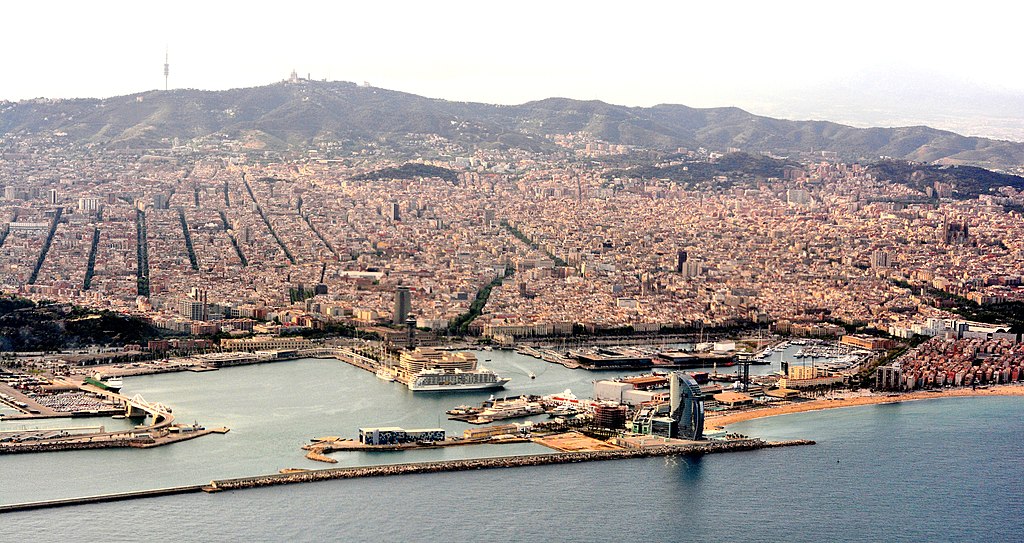
This is the most basic greeting in Catalan, and it’s a great way to start a conversation with locals. Use it when you meet someone new, or just when you pass someone on the street and want to be friendly. For example: “Hola, ¿com estàs?” (Hello, how are you?)
¿Com estàs?: "How are you?"
This is a friendly way to ask someone how they are doing in Catalan. You can use it to strike up a conversation with a stranger, or to show concern for a friend. For example: “¿Com estàs, amic? Has estat molt ocupat ultimament.” (How are you, friend? You’ve been very busy lately.)
Molt de gust: "Nice to meet you"
Use this phrase to introduce yourself to someone new or to say “Nice to meet you” after being introduced in Catalan. It’s a polite and formal way to greet someone, and it’s a great ice breaker when meeting someone for the first time. For example: “Hola, em dic Maria. Molt de gust de conèixer-te.” (Hi, my name is Maria. Nice to meet you.)
¿Parlaves anglès?: "Do you speak English?"
Not everyone in Barcelona speaks English, so it’s helpful to know how to ask if someone speaks English in Catalan. This can come in handy when you’re lost, trying to order food, or just want to make small talk with a friendly local. For example: “Perdona, ¿parlaves anglès? No entenc el que estàs dient.” (Excuse me, do you speak English? I don’t understand what you’re saying.)
¿On és el lavabo?: "Where is the bathroom?"
This is an essential phrase to know, especially when you are out and about in the city. Trust us, you don’t want to be caught in a situation where you can’t find a bathroom when you really need one. For example: “¡Perdona, si us plau! ¿On és el lavabo més proper?” (Excuse me, please! Where is the nearest bathroom?)
Si us plau: "Please"
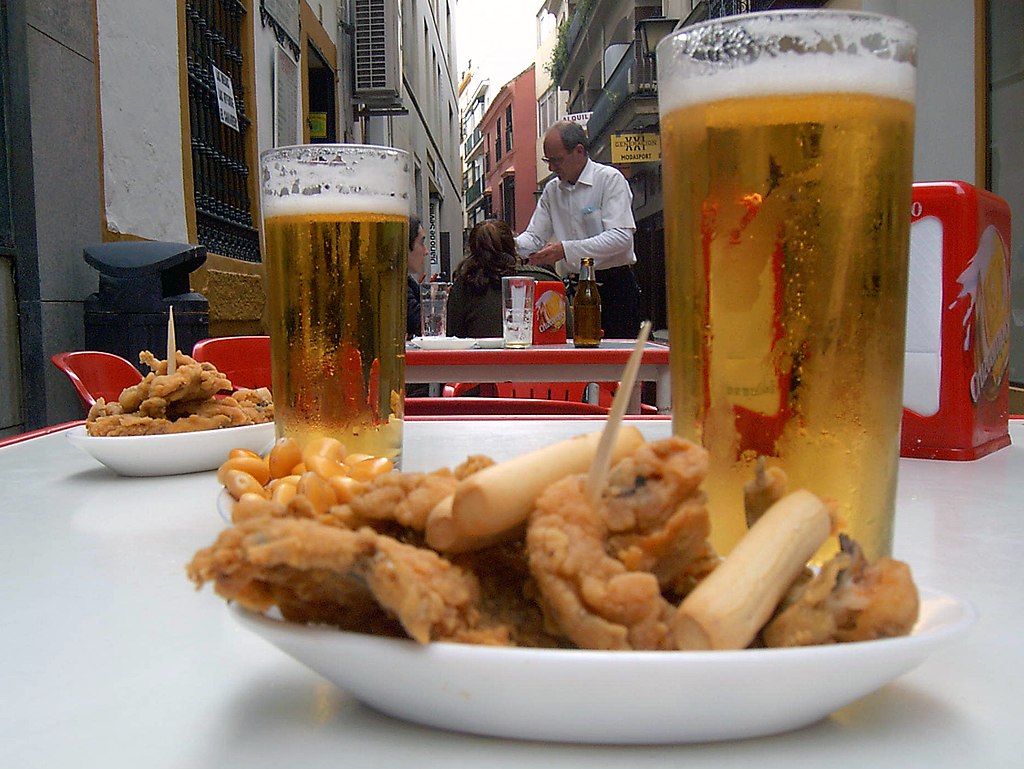
Use this phrase to show politeness and make your requests more gracious in Catalan. It’s a small but important way to show respect and kindness towards others. For example: “Si us plau, ¿podries portar-me una cervesa?” (Please, could you bring me a beer?)
Gràcies: "Thank you"
Use this phrase to show appreciation and gratitude in Catalan. It’s always nice to express thanks to others, and it can go a long way in building positive relationships. And hey, who doesn’t love to be appreciated? For example: “Gràcies per la cervesa! Està deliciosa.” (Thank you for the beer! It’s delicious.)
Ho sento: "I'm sorry"
Use this phrase to apologize for any mistakes or misunderstandings in Catalan. It’s always good to be able to say sorry, whether you accidentally bump into someone on the crowded streets of Barcelona or you accidentally spill your sangria all over someone’s new shirt. For example: “Ho sento molt, no vaig veure que tenies una cervesa a la mà. ¿Puc comprar-te una altra?” (I’m really sorry, I didn’t see that you had a beer in your hand. Can I buy you another one?)
¿Quin preu té?: "How much does it cost?"
Use this phrase to ask the price of something you want to buy in Catalan. It’s always good to know how much things cost so you can budget accordingly, and this phrase can come in handy when shopping for souvenirs or trying to negotiate a price. For example: “¿Quin preu té aquesta samarreta? És tan bonica!” (How much does this shirt cost? It’s so pretty!)
Learning a few Catalan phrases is a small but meaningful way to show respect for the local culture and to enhance your visit to Barcelona. With these phrases under your belt, you’ll be able to communicate with locals and fully immerse yourself in the rich and vibrant culture of Catalonia. Don’t be afraid to practice your pronunciation and to make mistakes – most locals will appreciate your effort to learn their language. Bon viatge! (Have a good trip!)
- Tags: Barcelona , Culture , Language , Spain
Here are some other posts you might enjoy:

Seville for Shopaholics: A Guide to the City’s Best Shopping Districts
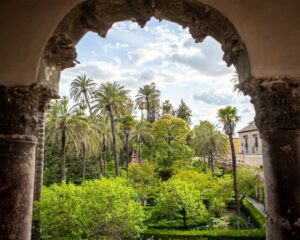
Madrid for Outdoor Enthusiasts: A Guide to the City’s Parks and Green Spaces

Uncover the Best of Seville: A Traveler’s Guide to the Must-See Local Customs

Seville for Nightlife Lovers: A Guide to the City’s Bars and Clubs

Seville for Families: A Guide to the City’s Kid-Friendly Activities
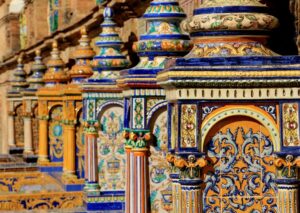
Seville for Art Lovers: A Guide to the City’s Museums and Galleries

5 Things You Didn’t Know About Sagrada Familia: A Traveler’s Guide to Barcelona’s Most Impressive Landmark

Eating and Drinking Your Way Through Madrid: A Foodie’s Guide

Seville for Outdoor Enthusiasts: A Guide to the City’s Parks and Green Spaces
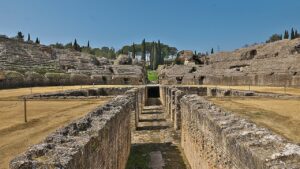
Uncovering the History of Seville: A Guide to the City’s Landmarks
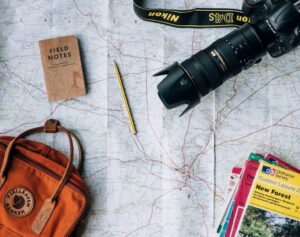
The Best Day Trips from Seville: A Traveler’s Guide

Seville: A Foodie’s Paradise
Get the best travel recommendations straight to your inbox with our newsletter.
Get the best travel recommendations, straight to your inbox with our newsletter!
Related Posts

Recent Posts

The Wonders of Romania’s Ancient City: Cluj-Napoca

Exploring the Fascinating Streets of Rotterdam

Discovering the Enchantment of Bruges

The Ultimate Guide to Experiencing Gothenburg’s Culture and History

A Delightful Getaway: Visiting Bruges

Taking in the Beauty of Salzburg’s Landscape
Travel guides, information.

Copyright 2024 EuroTrekker. All rights reserved.

8 Must-Know Catalan Phrases for Navigating Barcelona
- May 14, 2024
Do you want to learn basic Catalan phrases for your next trip to Barcelona? You may be thinking that you can just get by with Spanish or English, but if you really want to impress and get to know the locals, these essential Catalan words and phrases will go a long way.
Why not use your time at home over the next few weeks to brush up your language skills in one of Spain’s official languages and add some of these useful phrases to your repertoire.
Whether you’re greeting a friend, ordering food or buying souvenirs, we’ve definitely got you covered. Preparats (ready)?

Basic Catalan phrases to use around Barcelona
Bon dia (bon dee-ah) / bona tarda (bon-ah tard-ah).
Good morning / Good afternoon
When strolling along the streets of Barcelona, you’ll definitely hear this phrase used again and again. Put a smile on any local’s face with this common greeting (used more than “hola”). Remember, the afternoon starts around lunchtime and lasts all the way until just before dinnertime – which is around 10 pm – so don’t be surprised if someone greets you with “ bona tarda ” at 8 pm!
Si us plau (see oos plow) & Merci (mehr-see)
Please & thank you
If you’ve visited Barcelona several times and have heard the Catalan language being spoken, you may have noticed that it has some similarities with the French language. These two phrases will go a long way during your stay, so use them abundantly.
With “ merci ”, remember to put emphasis on the first syllable “ mer – ” as opposed to on the final syllable, like in French.
Note: “merci” is used a lot more than “gràcies” but please take into account it is colloquial.
De res (deh res)
You’re welcome
If it makes it a little easier to remember, you can literally translate this phrase as “of nothing”. What’s more it’s just like the French ( de rien ) and Spanish ( de nada ).
Adéu (ah-deh-ou)
Whether your waving farewell to your new Catalan friends or simply saying goodbye to the owners of your new favorite restaurant, be sure to do so with a friendly and heartfelt “ adéu ” .
Bon profit! (bon pro-feet)
Bon appetit!
The Catalans are a very courteous bunch, so don’t be surprised if you get total strangers declaring “ bon profit ” as you tuck into your meal at a local restaurant.
Quant costa – ? (kwant coh-sta)
How much is –?
The chances are during your stay at some point you’ll be buying souvenirs, tickets for the museum or a little treat for yourself. Use this phrase and simply add whatever it is you’re asking for or point and say “ això ” (ay-shoh), which means “this”.
El compte, si us plau (el com-teh see oos plow)
The bill, please.
Show off your language skills and impress your friends by asking for the bill in Catalan at the end of your meal. If you really want to blend in with the locals, try switching this phrase for “ Em cobres ” (um cub-ras), which literally means “charge me” and is used much more frequently by Catalans.
Parles anglès? (par-las ang-less)?
Do you speak English?
Whilst the majority of locals speak very good English, this polite question is sure to make you many a new friend in the city. Not only will they be impressed with your Catalan skills, they’ll be grateful you are trying to learn their language.
While we’ve got you covered for the basics, we encourage you to download a learning app or grab a dusty phrase book from your shelf and get studying so you can really blend in with the locals in Barcelona!
See you soon! Ens veiem aviat!
Some more bites
P.S. Below is a small list of other some additional vocabulary and Catalan phrases we’re sure will come in useful!
We hope you you found this mini guide to Catalan phrases useful and: ens veiem in Barcelona aviat! (See you soon in Barcelona) 🙂
Find Your Perfect Property in Barcelona
Are you ready to explore the city like a local? Now that you know some essential Catalan phrases, all you need is the perfect property. Check out the properties to rent on our website , or simply get in touch to tell us more about your requests. We can’t wait to show you around!
FIND YOUR HOME IN BARCELONA
Discover our exclusive properties.
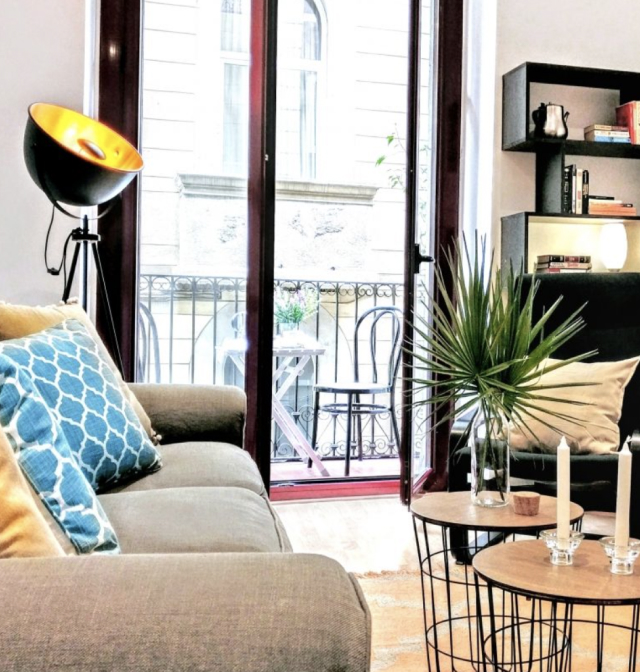
Parsifal at the La Rambla
A front row seat to Barcelona, Modern Charming
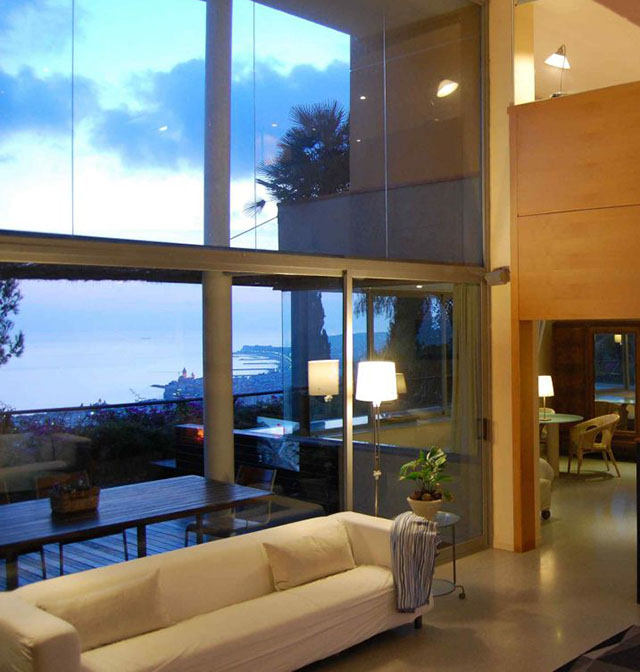
Elegant Villa in Sitges
Elegant and spacious with views of the sea, quiet mountain location
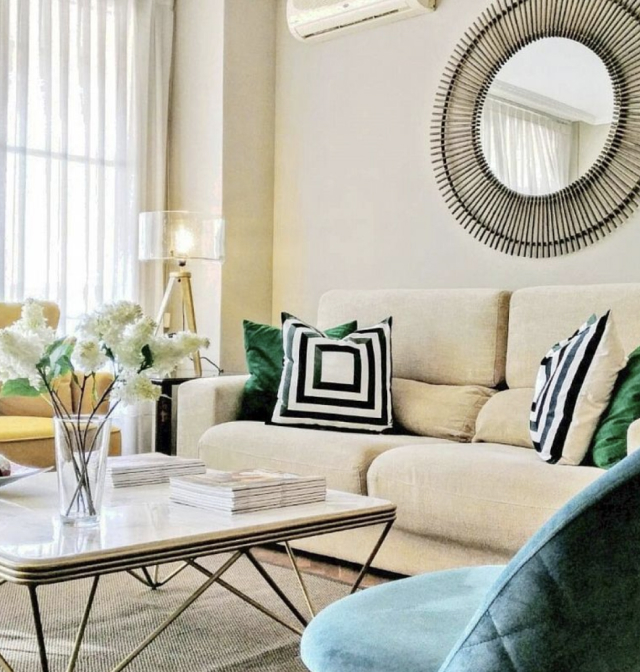
Gatsby Apt with Terrace
Luxury high floor & Terrace close to L'illa - Gatsby
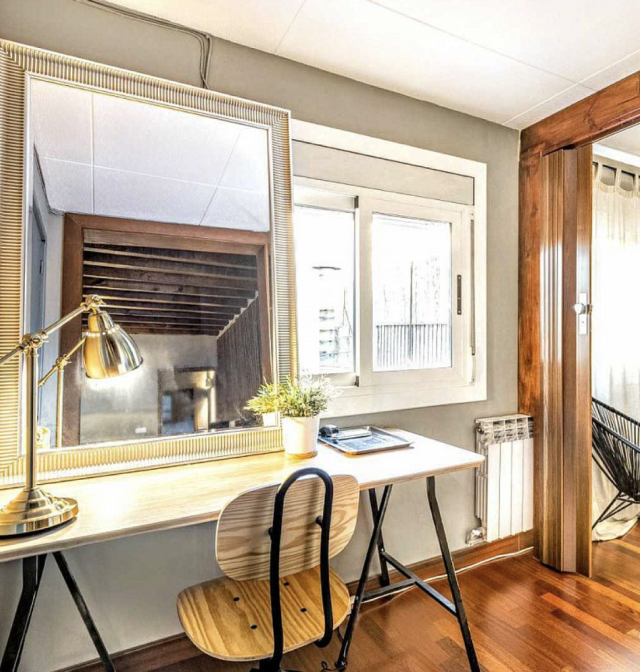
ArtBlue penthouse in Eixample
Colonial style with the perfect touch of romantic
- +34 936394343
- US Toll free 1-888-2487062
- [email protected]
2024 bizflats SL All rights reserved
20 Essential Catalan Phrases You’ll Need in Barcelona
Read our guide to the basic expressions you will need when travelling through barcelona..

Even if you have a decent grasp of Spanish, you’ll want to add these Catalan phrases to your repertoire to really impress in Barcelona.
One of the four official languages of Spain, Catalan is spoken in various dialects across Catalunya , Valencia and the Balearic Islands. Given the geographic origin of Catalan, which occupies a large Mediterranean area and a portion of the Iberian peninsula that rubs shoulders with France, the language shares many similar words with other romantic languages, including Italian, French and Portuguese. Here are 20 essential Catalan phrases that will help you get around the city and make friends with the locals when visiting Barcelona.
Bon dia ( bon dee-ah ) / Hello
The official greeting in Catalan is bon dia – though note that this is not the most common salutation but is still largely appreciated. If you can’t quite remember the phrase, more often than not, a simple hola will suffice and go a long way when it comes to getting off on the right foot with the local people.
Merci ( mehr-see ) / Thank you
The official Catalan word for ‘thank you’ is graciès (grah-see-ahs), but here in Barcelona, you’ll also hear people saying merci . Catalan has a lot in common with French – just look at the huge border Catalunya shares with France – and in this case, the words are identical.
De res ( deh res ) / You’re welcome
Another shared phrase, de res is linked to de rien in French. The phrase translates as ‘of nothing’, which is also the same meaning of de nada in Spanish . Saying de res after purchasing something in Barcelona will really show off your courteous side.
Adéu ( ah-deh-ou ) / Goodbye
You can say adios to using adios . In Barcelona , it doesn’t matter whether people are speaking Spanish (Castellano) or Catalan because when it comes to saying goodbye, everybody here says adéu .
Si us plau ( see oos plow ) / Please
Another expression that shows similarities with French is si us plau , which means ‘if you please’ and is often pronounced nearly as one word: syousplow. The French version of this phrase would be, of course, s’il vous plaît , which is often seen in English as part of the acronym RSVP.
Fem un café? ( fem un kah-feh ) / Let’s have a coffee
A very common way for Catalans to ask someone to grab a coffee is to say fem un café ? Alternatively, you can use fotem un café to ask someone to coffee if you do not know them very well or if the relationship is more business than casual. First thing in the morning, after lunch or as a quick fix when you get home from a long day at the office, the Catalans love a good coffee .
Salut i força al canut! ( sah-loot ee for-sah al kah-noot ) / To health and money (cheers)
This phrase is the traditional way to say ‘cheers’ in Catalunya before drinking your alcoholic poison of choice. If a Catalan tells you salut i força al canut , they are not just wishing you good health ( salut being the same as salud in Spanish) but also calling for greater força (‘strength’) to come to your wallet. The origin of this phrase can be traced back to the Middle Ages when Catalans used a canut , a type of leather money bag for holding coins.
Has begut oli ( ahs beh-goot oh-lee ) / You have drunk oil
When someone has really messed something up, when their plans have been foiled or when things just didn’t pan out, you can tell them has begut oli . Meaning ‘you have drunk oil’, this expression is usually used by Catalans to tell someone ‘you have failed.’ It serves to describe a sense of grave disappointment.
Déu n’hi do! ( day-oo nee-doh ) / Wow!
One of the most curious Catalan expressions, déu n’hi do is used almost exclusively in Catalunya, although few people know its precise origin. Meaning something along the lines of ‘God gave it’, the phrase is actually used to express amazement and can be translated as ‘wow’ or ‘amazing’.
S’ha acabat el bròquil ( sah a-cah-bat el broh-queel ) / The gig is up
If you hear a person tell you s’ha acabat el bròquil (meaning ‘there’s no more broccoli’), it’s got nothing to do with your diet. Instead, they’re more likely to be calling someone out on their deceptive mischief, as it is used as an expression to say something similar to English idioms ‘the gig is up’ or ‘the show is over’.
Aneu a escampar la boira ( a-neigh-oo ah es-camp-ar la boy-rah ) / Go escape the fog (leave me alone)
A clear sign that someone has had enough of your company, aneu a escampar la boira means ‘go escape the fog’, but can better be understood as ‘leave me alone.’ There are no two ways about it – if a Catalan does not want to have anything more to do with someone else, then this is what you’ll hear.
Quatre gats ( kwat-reh gats ) / Four cats
Translated as ‘four cats’, quatre gats is a common way of saying there are ‘few people’, as in ‘there were only four cats at the party last night’. It’s also the name of a famous café in Barcelona – a popular hang-out among members of the city’s 20th-century literary and artistic society, similar to Le Chat Noir in Paris.
Bon profit! ( bon pro-feet ) / Bon appetit!
Wishing fellow diners a good meal is second nature here. Catalans often wish a friendly bon profit to anyone who is eating – even strangers. Everyone deserves a good meal, and this is something that is equally acknowledged and celebrated in a foodie culture like that of Barcelona.
Puc veure el menú? ( pook vor al men-oo ) / Can I see the menu?
While Spanish is widely spoken, and Catalan isn’t expected to be spoken by foreigners visiting Barcelona, using a few phrases when dining in Catalan-owned establishments would be met with great respect – and utter surprise. During the week, many Catalan bar-restaurant combos serve a worker’s lunch menu or menú del día , which is a good value for money and usually includes three courses and a drink.
El comte, si us plau ( el com-teh see oos plow ) / Check, please
Now it is time to combine some phrases you have already learned above. By asking nicely for el comte , or ‘the count’, visitors can call the waiter for the bill, which is similar to both Spanish and French. Alternatively, since service can be notoriously slow in Barcelona, you can also make a gesture that you wish to sign a bill, signalling the waiter to close your check.
Què és això? ( kay es ay-shoh ) / What is this?
Once again, while most people at the markets in Barcelona will speak Spanish, being able to ask about different products will be useful because all labelling is in Catalan. This includes meats, vegetables and fruits – and they often do not bear any similarity in writing to Spanish. Of course, you could always guess, but it is better to ask.
Quant costa això? ( kwant coh-sta ay-shoh ) / How much does this cost?
At the market, many items are sold by weight, so you’ll need to be specific when asking about their cost. In many cases, the price shown is for 100 grams (3.5 ounces), and the stall owner will weigh vegetables, meat and fish without any problem so long as they haven’t been cut to order.
Parla anglès? ( par-lah ang-less )? / Do you speak English?
While most people speak Spanish, you never want to assume they speak English. Asking them politely in Catalan if they can speak English is one way not only to find out but also make friends. Catalans love to hear foreigners try out their language, even if it’s just a simple sentence. That being said, a lot of people speak at least a few words of English in the city, especially the younger generations and those working with tourists.
T’agradaria beure alguna cosa? ( tah-grah-dah-ree-ah beh-ur al-goo-nah coh-sah ) / Would you like a drink?
Catalans love their fiesta. Local people here love relaxing over a cool drink even more. Having a drink with friends is a common pastime in Barcelona, and you’ll find that the terraces of bars and restaurants fill up quickly during any time of the year, afternoon or night.
Esquerra i dret ( es-keh-rah ee dreht ) / Left and right
You’ll see these directional words used on certain maps across Barcelona, where most street signs are in Catalan (even the word ‘street’ is carrer here, not calle , as in Spanish). For example, the area between Sants and Sant Antoni is called the Nova esquerra de l’Eixample or the ‘New left of the extension’. This district is also known as L’Eixample , which means ‘the extension’ and refers to the extension of Barcelona in the 19th century.
U /un (m) ( oon ) / una (f) ( oon-a ) / 1
Dos (m) ( dos ) / dues (f) ( dou-ass )/ 2
Tres ( tres ) / 3
Quatre ( kwa-treh ) / 4
Cinc ( sink ) / 5
Sis ( sees ) / 6
Set ( set ) / 7
Vuit ( vweet ) / 8
Nou ( noh ) / 9
Deu ( deh-oo ) / 10
This article is an updated version of a story created by Tara Jessop .
- Beelinguapp
A Short List of Essential Catalan Phrases To Know
- good morning : bon dia (bon dee-yah)
- good afternoon : bona tarda (bo-na tar-da)
- good night : bona nit (good night)
- hello : hola (oh-la)
- goodbye : adéu (ah-dyo)
- bon appétit : bon profit (bon pro-feet)
- please : si us plau (si oos plow), per favor (per fah-vor)
- thank you : merci (mer-si)
- thanks : gracies (gra-syes)
- you're welcome : de res (de res)
- do you speak english : parles anglès (par-les ang-gles)
- I’m sorry : perdó (per-doh)
- how are you : com estàs (kom es-tas)
- good, thanks : molt bé, gràcies (mol beh gra-syes)
Related Posts
En casa: spanish vocabulary words for around the house, “卵 (tamago)” & more japanese food vocabulary, reset: learn how the rest of the world takes a break, subscribe to our newsletter.

- Constructed scripts
- Multilingual Pages

Useful Catalan phrases
A collection of useful phrases in Catalan, a Romance language spoken mainly in Spain, Andorra and France, with audio recordings for most of them.
Guide to abbreviations: inf = informal, frm = formal, sg = singular (to one person), pl = plural (to two or more people), >m = said to men, >f = said to women
Jump to phrases
See these phrases in any combination of two languages in the Phrase Finder . If you can provide recordings, corrections or additional translations, please contact me .
Recordings and corrections provided by Sergi Mesonero
Download all the audio files (Zip format, 1MB)
If you would like to make any corrections or additions to this page, or if you can provide recordings, please contact me .
Information about Catalan | Phrases | Numbers | Family words | Time | Tongue twisters | Tower of Babel | Catalan courses on: Amazon.com and Amazon.co.uk [affilate links]
Learn Catalan with Glossika
Collections of Catalan phrases (some with audio) https://ilovelanguages.org/catalan_phrases.php https://ielanguages.com/catalan.html http://www.bbc.co.uk/languages/other/quickfix/catalan.shtml http://mylanguages.org/catalan_phrases.php https://wikitravel.org/en/Catalan_phrasebook
Phrases in Romance/Italic languages
Aragonese , Aranese , Aromanian , Asturian , Catalan , Corsican , Extremaduran , French , Friulian , Galician , Gallo , Gascon , Guernésiais , Italian , Jèrriais , Ladino , Latin , Occitan , Monégasque , Mozarabic , Picard , Portuguese (Brazlian) , Portuguese (European) , Romanian , Romansh , Sardinian (Campidanese) , Sardinian (Logodorese) , Sicilian , Spanish , Venetian , Walloon
Phrases in other languages
728x90 (Best VPN)
Why not share this page:

If you like this site and find it useful, you can support it by making a donation via PayPal or Patreon , or by contributing in other ways . Omniglot is how I make my living.
Get a 30-day Free Trial of Amazon Prime (UK)

- Learn languages quickly
- One-to-one Chinese lessons
- Learn languages with Varsity Tutors
- Green Web Hosting
- Daily bite-size stories in Mandarin
- EnglishScore Tutors
- English Like a Native
- Learn French Online
- Learn languages with MosaLingua
- Learn languages with Ling
- Find Visa information for all countries
- Writing systems
- Con-scripts
- Useful phrases
- Language learning
- Multilingual pages
- Advertising

- Top Phrases From The Catalan...
Top Phrases From the Catalan Language

One of the five official languages of Spain, Catalan is spoken in various dialects across Catalunya, Valencia and the Balearic Islands. Here are some Catalan expressions you need to know to appreciate this historic language.
Déu n’hi do.
One of the most curious Catalan expressions , ‘ Déu n’hi do’ is used almost exclusively in Catalunya although few people know its precise origin. Literally meaning something along the lines of ‘God gave it’, the phrase is actually used to express amazement and can be translated as ‘wow’ or ‘amazing’.
Fotem un café?
Despite being a very common way for Catalans to invite someone to grab a coffee, ‘ fotem un café? ‘ is an expression which literally means ‘shall we fuck a coffee?’. First thing in the morning, after lunch or as a quick fix when you get home from a long day at the office, the Catalans love a good coffee .
S’ha acabat el bròquil
Literally meaning ‘there’s no more broccoli’, if you hear a person tell you ‘ s’ha acabat el bròquil ‘ it’s got nothing to do with getting your five a day. Instead, they’re more likely to be calling someone out on their deceptive mischief, as it is used to say something similar to ‘the game is up’.
Salut i força al canut!
If a Catalan tells you ‘ Salut i força al canut ‘, you know they’ve got your best interests at heart. ‘Health and strength to your purse’ is a popular toast in Catalunya, and is often heard around the dinner table when friends and family raise a glass to wish each other all the best for the future.
He begut oli
When you realise you’ve messed up, when your plans have be foiled or when you just couldn’t achieve your goals, you can declare ‘ he begut oli ‘. Literally meaning ‘I have drunk oil’, this expression is used by Catalans to say ‘I have failed’ and serves to describe the sense of inescapable disappointment.
Aneu a escampar la boira
A clear sign that someone has had enough of your company and it’s time to move on, ‘ Aneu a escampar la boira ‘ means ‘go escape the fog’, but can better be understood as ‘leave me alone’. There’s no two ways about it, if a Catalan is tired of hearing the sound of your voice, you’ll soon know about it.

Become a Culture Tripper!
Sign up to our newsletter to save up to $1,200 on our unique trips..
See privacy policy .
Quatre gats
Translated as ‘four cats’ in Catalan, ‘ quatre gats ‘ is a common way of saying ‘few people’, as in ‘there were only four cats at the party last night’. It’s also the name of a famous café in Barcelona , a popular hang-out among members of the city’s 20th-century literary and artistic society, similar to the ‘Chat Noir’ café in Paris.

Places to Stay
The best hotels to book in salou, catalonia.

Guides & Tips
The most beautiful train stations in the world.

Reasons Why You Should Visit La Rioja, Spain

See & Do
Getting a taste of picasso in malaga.

The Best Private Trips to Book for a Foodie Adventure

Reasons Why You Should Visit Andalucia, Spain

The Best Places to Travel in June

Top Tips for Travelling in Spain

The Most Unique Temples and Churches in the World

Bars & Cafes
The best wine bars in la rioja, spain.

The Best Hotels to Book in Catalonia

The Best Private Trips to Book for Your Spanish Class
Culture Trip Summer Sale
Save up to $1,200 on our unique small-group trips! Limited spots.

- Post ID: 1247316
- Sponsored? No
- View Payload
- 500 Popular Words
- Translation
- Learning Tips
- Amazing Languages
Catalan Phrases
Welcome to our seventh lesson about popular Catalan phrases . This page will include greetings , questions , emergency and survival expressions , asking for direction , language practice , introducing yourself , holiday wishes , and finally some travel phrases .
I hope you enjoyed this lesson about the phrases in Catalan. Please check out our main menu here for more lessons: homepage . The next lesson is below.
A handy dandy Catalan phrase sheet
A traveler's cheat sheet on how to say the basics and ask important questions in catalan, the language of barcelona.
Catalan—the language spoken in Barcelona and the rest of Spain's Catalonia region, as well as on the Balearic Islands (Ibiza, Majorca, etc.) and in Valencia—is not Spanish , nor is it a dialect of Spanish . It is its own langauge (though it is still a Romance language, so it sounds a bit like a cross between Spanish and French, with a dash of Italian and some Portuguse on the side).
Yes, most people in Barcelona also speak and understand Spanish , but it's far more polite to try to speak their actual language.
Basics | Transport | Lodging | Dining | Time/Numbers | [ pronunciation notes ]
Time & numbers
Catalan pronunciation notes.
Catalan shares some of its pronunciation quirks with Spanish —like the double-l "yuh" sound, and (sometimes) pronouncing a "v" like a "b." However, they do no "lisp" their c's and z's as in the Castillian Spanish ceceo.
- "c" followed by an "i" or "e" is pronounced as a soft "c" as in celery.
- "c" followed by an "a," "o," "u" or a consonant is a hard "c," prounounced like a "k."
- "ç" is pronounced as a soft "c" as in celery.
- "j" is pronounced as a "zh" sound, like the s in pleasure.
- "ll" is pronounced as a "y" as in "yes."
- "r" (at the start of a word or after a consonant) and "rr" are r-r-rolled, as in most Romance languages (and Scottish)
- "x" is usually pronounced "sh" —unless it is between two vowels, in which case it actually is pronounced "x" (with a bit of an "sh" at the end—so kind of "ksh")
- "tx" is prounounched "ch"
- "ny" is the Catalan version of the Spanish ñ, prounoucned as in canyon.
- "v" is pronounced sometimes like a "b" as in "boy" (especially if it starts a word), other times like a cross between a "b" and a "v" (hard to describe; try to make a "v" sound with your lips starting lightly closed—as opposed to tightly closed, as they would be for a hard "b")
- "h" is silent. (So "hola" is prounounced "o-la").
- "qu" is tricky. Normally, you pronounce the u part, so it is "kw" as in "quack"—unless the following letter is an i or an e, in which case the u is silent (so "que"="kay" and "qui"="key")... unless the u is a ü, in which case go back to pronouncing the u ("qüe"="kway" and "qüi"="kwai").
- "gu" follows the same tricky rules as qu ("gue"="geh" and "gui"= ghee", otherwise it's all "gw...")
- "g" is usually a hard g (as in "go"), unless it is followed by an e or i, in which case it is soft, like the "j" in jeans.
This article was by Reid Bramblett and last updated in September 2013 . All information was accurate at the time. about | contact | faq Copyright © 1998–2013 by Reid Bramblett . Author: Reid Bramblett .
- 10 Steps to the cheapest plane tickets
- More on air travel
- No-frills airlines
- Trains & railpasses
- Car rentals & leases
- Cruises, ferries, & barges
- Hotel basics
- Hotel hunting
- European hotels
- Hotel bathrooms
- Hotel rip-offs
- Saving money on hotels
- Agriturism / farm stays
- Camping in general
- Free camping
- Cottages/gîtes
- CouchSurfing
- Crewing a boat
- Dude ranches
- Sleep for free
- Historic inns
- Home swapping
- Hospitality exchange
- House sitting
- Monasteries
- Mountain huts
- Overnight trains
- Rental rooms
- Schlaf im stroh
- Sleeping in airports
- Universities
- Villa rentals
- Reid's recommended hotels
- Sightseeing
- Tours & activities
- Dining tips
- Shopping & taxes
- Cruises & barges
- Photography tips
- Theaters, concerts, & tickets
- Perfect itineraries
- Timing your trip
- Tourist seasons
- The weather
- Time to budget for major cities
- Ultimate packing list
- Luggage & travel bags
- Luggage tips
- Packing systems
- Shopping for bags
- The fine art of packing light
- Gear & gadgets
- Traveling with electronics
- Travel visas
- Trip insurance
- Health insurance
- Travel warnings
- Making a backup info sheet
- ISIC: Student IDs
- Tourist offices
- Travel guidebooks
- Newspaper travel sections
- Travel magazines
- Travel newsletters
- Photo galleries
- Online maps
- Calling another country
- Calling home from another country
- On the polite use of English
- On gestures
- Phrase books
- Digital translators
- Translator apps
- Online translators
- Language learning programs
- Five-language phrase sheet
- Internet cafes & hotel computers
- How to find WiFi hotspots
- Mail (snail variety)
- The metric system 101
- Pickpockets
- Rip-offs & scams
- Train safety
- Losing things
- Drugs & prostitution
- Women's issues
- Racial concerns
- Travel in the age of terrorism
- Travel health insurance
- Drinking the water
- Medications & prescriptions
- Air pollution
- Useful health links
- Credit cards
- Finding ATMs
- Changing money
- Currencies & Converters
- Traveler's checks
- Cold hard cash
- Find a better bank
- Wiring money
- Shopping tips
- The fine art of haggling
- Clothing size conversions
- The VAT (Value Added Tax)
- U.S. Customs
- Duty-free shopping
- Top gifts in Europe
- Europe's top markets
- Save on airfare
- Save on rail travel
- Save on car rentals
- Save on hotels
- Save on dining
- Save on sightseeing
- Free sights
- Worst money-savings tips
- Arctic (Spitsbergen)
- New Zealand
- Easter Island
- Cook Islands
- Puerto Rico
- Czech Republic
- The Netherlands
- Switzerland
- U.S. General
- National Parks
- Mississippi
- Pennsylvania
- South Dakota
- Washington State
- Australia/Pacific
- North America
- South America
- Hiking &trekking
- Miscellaneous
- Money-savers
- Plan your adventure
- Water sports
- Winter sports

- Lodging options
Matador Original Series
Follow this guide to catalan to better navigate barcelona like a local.
I f the three Spanish regions where the Catalan language is spoken suddenly became independent from Spain, the resulting country would instantly turn into one of the world’s top-10 tourist destinations. In 2019, almost 43 million international travelers made it to the Mediterranean-washed shores of Catalonia, the Valencian Region, and the Balearic Islands. A figure on par with the entire population of Spain.
Yet, despite Catalan-speaking Spain’s whooping popularity, many visitors remain blissfully unaware of its millenary linguistic heritage. Worse, it is not uncommon for tourists to mistake Catalan as a dialect of Spanish (in fact, it derives directly from Vulgar Latin). And while it is true that Spanish is universally spoken and English will take you a long way, even a clumsy “bon dia” — good morning in Catalan — will have everyone nodding appreciatively. This traveler’s guide to the Catalan language is all you need to venture off the beaten tracks of La Rambla and Sagrada Família and into the locals’ hearts.
The author:
Marcos Bartolomé has lived in Barcelona for less than two years but he is often mistaken as a native Catalan speaker. “Is menorquí [a dialect of Catalan] your mother tongue?”, asked his examiner after he completed the oral exam declaring him officially proficient. He taught himself the language before moving to Catalonia through music lyrics and the Catalan public broadcaster’s satirical TV shows. As a native Asturian, he is an ardent champion of linguistic minorities and speaks seven languages himself. He has conducted research on the Moroccan project to revitalize the Tamazight language at Georgetown University, where he graduated with a Master’s in Arab Studies, and has been a Spanish teacher at a public high school on the French East African island of Mayotte.
Where is the Catalan language spoken?
The different types of catalan, which language is catalan closest to, catalan vs. spanish: the catalan alphabet, catalan language pronunciation guide, how to say “thank you”, “good afternoon”, “hello”, etc. in the catalan language.
- Catalan words, sentences, and phrases for eating and drinking to your heart’s content
Catalan words and sentences you need to find a good accommodation
- Catalan words and sentences you’ll need to get around
Numbers in Catalan and words you’ll need when shopping
Catalan words and sentences you’ll need if you hike.
Contrary to what its name suggests, Catalan is by no means confined to Catalonia, whose constitution grants it the status of “native language.” So does the Valencian Region — under the label of valencià (Valencian) — and the Balearic Islands, where the distinct local varieties of the Catalan language are named after each island: mallorquí (Mallorca), menorquí ( Menorca ), and so forth. Across these regions, Catalan has a prominent — yet uneven — presence in school, everyday life, and the media alongside Castilian Spanish. Pockets of the Catalonia-adjacent region of Aragon are also Catalan-speaking.
All in all, more than one in ten Spaniards speaks a variety of Catalan at home, an impressive figure given Spanish dictator Francisco Franco’s almost four-decade-long war on linguistic diversity in the country.
Yet, this is only half of the story. Owing to the Mediterranean expansion of the Kingdom of Aragon in the Middle Ages, to this day Catalan is spoken in places as far from the language’s cradle as the city of Alghero (L’Alguer, in Catalan) on the Italian island of Sardinia. Catalan can also regularly be heard in New York’s UN General Assembly , or the Eurovision , as it is the only official language of the Principality of Andorra, a microstate sandwiched between Spain and France. Lastly, around five percent of France’s Pyrénées-Orientales – which before 1659 belonged to the Crown of Aragon — are also Catalan-speaking.
Just like any other language, Catalan reflects the stories of its speakers. As most of the Iberian Peninsula was for centuries under Arab control, modern-day Catalan is rich in Arabic loan words. On the island of Menorca, ruled by the British for almost a century until 1802, people still use (catalanized) English words like “xoc” (chalk) or “escrú” (screw).
The Catalan language is split into two groups of dialects: Eastern and Western Catalan. The first meridian east roughly marks the border between both. Eastern Catalan provides the basis for standard Catalan.
Apart from this official division, Catalan speakers also refer to other varieties:
- Xava: A word used — often derogatorily — to describe a distinct type of Catalan found in Greater Barcelona. As Spain’s earliest industrial hub, the Catalan capital received a wealth of Castilian-speaking workers from the economically disenfranchised South. The language contact resulting from this rural exodus gave way to a variety of Catalan heavily influenced by Spanish.
- Català salat: Literally salted or seasoned Catalan, it refers to the varieties where definite articles are pronounced with an “s” instead of with an “l” ( e.g. “sa platja” instead of “la platja” for the beach). Although now confined to the Balearic Islands, this dialect used to be found on mainland Spain too. Place names like Sant Esteve Sesrovires (famous singer Rosalía ’s birthplace) are proof of this heritage.
- Lleidatà: Heard of Alcarràs , the first Spanish movie to win the Berlin Festival’s Golden Bear since 1983? Well, Carla Simón’s masterpiece was filmed in lleidatà, a Western dialect characterized by the shift of a verb’s third person singular final “a” into an “e”. “Ell torna” (he comes back) becomes “ell torne”).
Catalan’s closest living language is Occitan, spoken in Catalonia’s Val d’Aran, Southern France, Monaco, and some valleys in Italy. Together, Catalan and Occitan form the Occitano-Romance language group. Catalan is also closely related to French and Spanish and, more distantly so, to all Romance languages, such as Romanian.
Catalan and Spanish use the same alphabet save for the Spanish “ñ”, which is to say that the English and the Catalan alphabets are the same.
Phonetically speaking, Catalan lies somewhere between Spanish and French. For instance, while the language features the rolled “r” found across Spain and Latin America rather than the raspy French “r”, it lacks the characteristic “th” as well as the strong “kh”, two sounds Castilian Spanish is known for.
Catalan has two types of accents: obert (à, è, ò) and tancat (é, í, ó, ú). While the grave accent opens the vowel, the acute one closes it. Whenever a word has an accent, that’s where the stress will fall. If there are no accents, your best chance to get the word right is to place the stress in the second-to-last syllable.
Catalan words, sentences, and phrases to help you eat and drink to your heart’s content
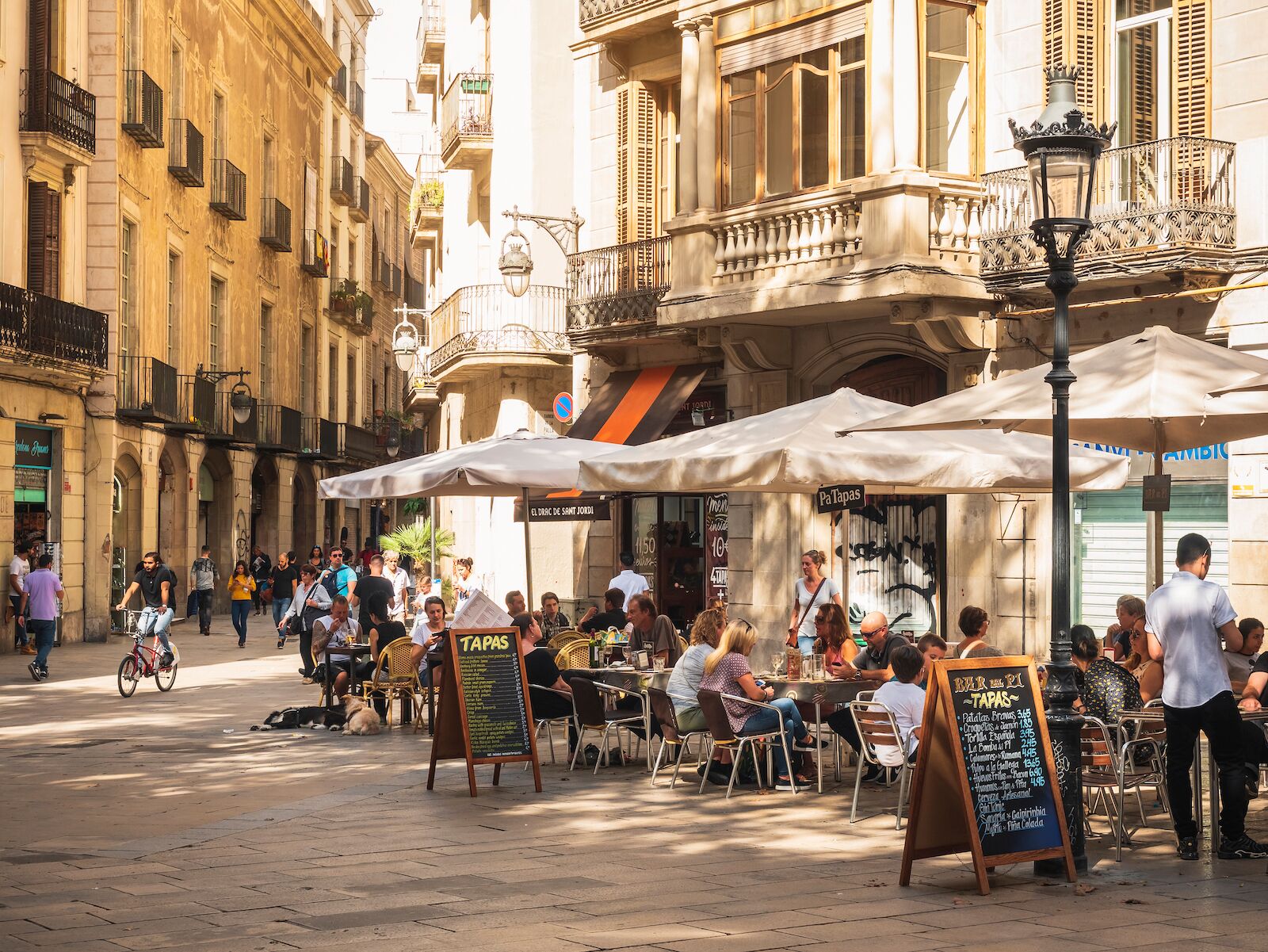
Photo: VTT Studio /Shutterstock
Paella is delicious but it has become a tourist trap over the years. If you go to a restaurant in Valencia, you might as well order “arròs del senoyret” which translates as “the lord’s rice” (it’s called like this because all the seafood has been peeled before being served so your hands won’t get dirty). If you are in the mood for a really hearty dish, order “arròs al forn.” Both dishes are lesser-known relatives of the traditional paella.
Catalan words and sentences you’ll need to get around Photo: Viktoria Bakina /Shutterstock
They say that “Barcelona és bona si la bossa sona”, meaning that your stay will be worth it if your bag is full of clinking coins. Coined by Italian merchants, these days the sentence asserts that having a good time in Barcelona requires a lot of money. Not true. While Barcelona — as well as Palma and Valencia — are admittedly some of Spain’s most expensive cities, prices are not even nearly as high as in most European cities further north. Avoid the overcrowded old towns and places advertising paella and sangría and you’ll do just fine.

Photo: Unai Huizi Photography /Shutterstock
From the scenic “camins de ronda” originally built to patrol the turquoise Costa Brava and stop smuggling, to the “Ruta de la pedra en Sec” in the Mallorcan mountains, there’s a whole world of hiking waiting for you.
But, beware! Just make sure to grow familiar with the surroundings and how to respect them before your hike, lest you be mocked as a “pixapins” or pine-pisser, as countryside dwellers mockingly refer to urbanites unaccustomed to rural life.
More like this
Trending now, the most epic treehouses you can actually rent on airbnb, 21 of the coolest airbnbs near disney world, orlando, stay at these 13 haunted airbnbs for a truly terrifying halloween night, the top luxury forest getaways in the us, the 19 most beautiful converted churches you can stay in around the world on airbnb, discover matador, adventure travel, train travel, national parks, beaches and islands, ski and snow.
We use cookies for analytics tracking and advertising from our partners.
For more information read our privacy policy .
Matador's Newsletter
Subscribe for exclusive city guides, travel videos, trip giveaways and more!
You've been signed up!
Follow us on social media.
- Back to last menu
- Booking.com Deals
- Where to stay
- Restaurants
- Schools & Classes
- Spanish word list - sailing glossary
- Spanish word list - skiing glossary
- Spanish word list - driving glossary
- Spanish word list - property glossary

- Skip to main content
- Skip to primary sidebar
- Skip to footer

Useful Spanish and Catalan Phrases to Know Before Your Trip to Barcelona
Sean Finelli Last Updated: November 14, 2022
Knowing the local language can always help when traveling to a new place. Though many people speak English, here are some helpful Spanish and Catalan phrases to know before your trip to Barcelona to make your visit a little more cultured.
Pro Tip: Barcelona is an amazing city best seen with a local guide. Check out our Barcelona tours and get some language tips from one of our expert guides?
Difference Between Spanish and Catalan Languages
When visiting Barcelona, in the underground, buses or touristic monuments, you will notice that some signs are written in two or three languages. Barcelona is the capital of Catalonia, an autonomous region of Spain, and therefore it maintains certain cultural singularities, among them its own language, Catalan.
To make your visit easier and funnier, here we will show how to differentiate both languages (although sometimes they use the same words and expressions!) through useful phrases that can help you understand better local culture and Barcelona’s dynamics.
Pronunciation: OH-la
This is the easiest and most useful word when visiting Barcelona. Hola means hello and is the simplest way to salute people you will come across during your visit here. When saying hola, people reply with the same word alongside good morning/afternoon or asking you how are you doing today.
It’s weird when hola is said alone, and depending on the time of the day, you will have to say good morning or good afternoon as well. So, you can say bon dia (Catalan), buenos días (Spanish), or good afternoon, which is bona tarda (Catalan) or buenas tardes (Spanish).
To make things easier, you can skip this second part and just say què tal? after saluting, “how are you?”. Asking this question will make your life easier if you want to stop somebody in the street to ask for an indication or for orientation.
2. El compte, si us plau/la cuenta, por favor (check, please)
Pronunciation: el-komte-si-oos-plau/la-kuenta-por-fahvor
When sitting in a nice restaurant, usually the server will ask you if you’d like to have the check. When this does not happen, you will have to either pronounce these magic words el compte, si us plau in Catalan or la cuenta, por favor in Spanish (check, please).
Popular Barcelona Tours

Best Selling Tour
Skip the Line Sagrada Familia Tour
Sagrada Familia is a three-sided gothic masterpiece designed by visionary Antonio Gaudí which has yet to be finished. The church is nearing completion and a wonderful display of color and architecture. Visit with a passionate local guide and skip the lines for admission!
Customer Favorite
Barcelona Food & Wine Tour with Local Sommelier
We can’t think of a better way to explore a city than to eat your way through it, and there will be enough tapas and wine to discover a lot of Barcelona! Join us on a delicious discovery of the Gothic quarter – one of Barcelona’s most vibrant areas!
3. A on està…? Dónde está…? (Where is…)
Pronunciation: ah-on-estah/dohnde-estah
If lost in Barcelona, and after saying the saluting words Hola, com estàs? this new phrase can help you reach your hotel or the monument you would like to visit in Barcelona. Many people in Barcelona speak English, especially young people, so in case you forgot the words a on està/dónde esta mi hotel (my hotel)? you can always use English to ask your question, don’t worry!
4. Merci! Gràcies/Gracias! (Thank you!)
Pronunciation: mersi/grasies/grazias
Like in French, Catalan people say thanks by saying merci , which is a very useful word and easy to remember. So don’t be surprised if somebody uses this French word when thanking you in Barcelona. If this French word does not appeal to you, there are other words that can be used for thanking people in Barcelona, gràcies in Catalan and gracias in Spanish!
5. Una cervesa si us plau/Una cerveza por favor (A beer please)
Pronunciation: oo-na ser-vay-zah si oo-plow / oo-na ser-vay-zah por fah-vor
Well, as you will see while walking around Barcelona, many people will be sitting on terraces relaxing and chatting, but more importantly, most of them will be drinking beer. To order this drink you will need to know how to order it: una cervesa si us plau, in Catalan, and una cerveza por favor, in Spanish. Waitresses will likely offer you local beers, Estrella Damm and Moritz, nice and cold beers that will help you relaxing after visiting this amazing city.
6. Parles anglès? Hablas inglés? (Do you speak English?)
Pronunciation: parles-angles?/ablas-ingles?
If some of these words can’t help you when asking locals about directions or when ordering food, you can go ahead and ask if they speak English. Most people in Barcelona and Spain speak English or can understand it, so even if their English is limited they will try to be as helpful as possible.
7. Quant costa això? Cuánto cuesta esto? (How much does that costs?)
Pronunciation: kuan-kosta-asho?/kuanto-kuesta-estoh?
Barcelona is full of souvenir shops, but there are also the most famous fashion brands shops. In Passeig de Gràcia you will be able to shop in the most exclusive fashion firms shops, but also for local and souvenir shops this phrase will help you to know what is the price of articles you might be interested in purchasing.
8. Perdó!/Perdón! (Sorry!)
Pronunciation: perdoh/perdon
If caught in the middle of a subway wagon or a packed bus and you need to get to the exit, this word is going to help you get through it. This word can also be used as excuse me , when you are in a bar or a restaurant and you’d like to get the server’s attention.

Unbeatable Barcelona in a Day Tour
Our Barcelona in a Day tour covers all the major attractions plus hidden gems. This walking tour includes Sagrada Familia, Casa Batlló, Casa Mila, the Gothic quarter, Park Güell, and transportation to reach the more remote sites. You get skip the line entry and a passionate guide too!
Full Day Trip to Montserrat from Barcelona with Winery & 3-Course Lunch
Enjoy a day away from Barcelona on this trip to a magical place nestled on a mountain top above the clouds. Experience Montserrat where the myth comes to life before visiting an amazing winery in the hills for lunch and wine tasting at an organic vineyard.
9. Vaig a…/Voy a… (I am going to…)
Pronunciation: vach-ah/voy-ah
When talking to a taxi or bus driver, you can make sure you are going to the right place by saying vaig a/voy a and then your desired destination.
10. Adéu! Adiós! (Bye bye!)
Pronunciation: adew/adiohs
This is the simplest and most educated way to say goodbye when visiting Barcelona. In general, locals in Barcelona are grateful when hearing foreigners using the local language, especially if you use Catalan!
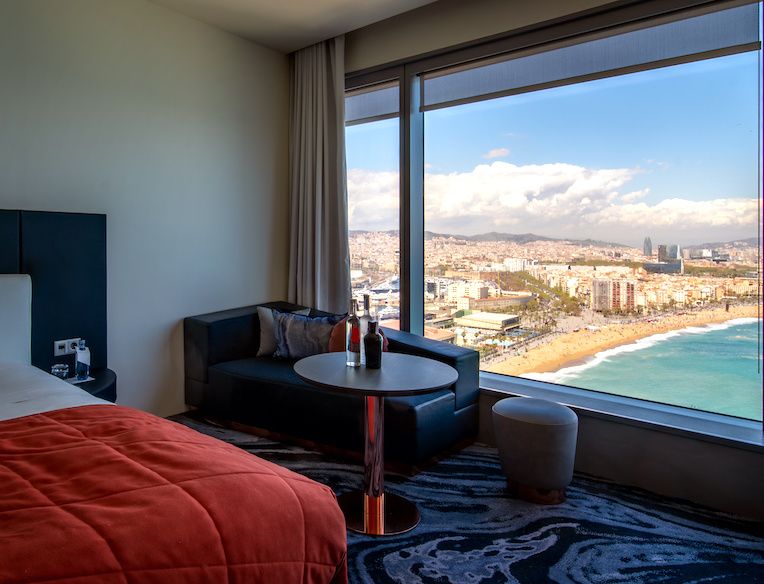
Where to Stay in Barcelona
A great hotel at a great price has become the norm in this internet era. Our article explains what areas are the best in Barcelona so you can get a great deal on the perfect location!
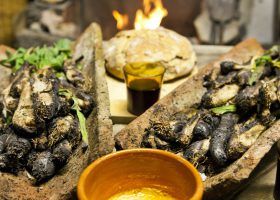
About Sean Finelli
Sean is a co-founder and owner of The Tour Guy and its subsidiary The Roman Guy. He studied finance and statistics, but that is his "Dr. Jekyll" side! His "Mr. Hyde" is in love with travel, art, history, and culture. Sean has read libraries of historical text and believes that all internet content should come from books. A practice he follows!
Reader Interactions
Leave a comment cancel reply.
Your email address will not be published. Required fields are marked *
- Travel Blog
- In The Press
POLICY & TERMS
- Cancellation Policy
- Terms & Conditions
- Privacy Policy

You're seeing this message because you have JavaScript Disabled. Like all Websites, our website is best experienced with JavaScript in modern web browser. Please consider turning on JavaScript or updating to a modern browser.
Handpicked villas with private pools
BOOK ONLINE OR CALL

My Favourites

Highly useful Catalan phrases
If you’re heading to Catalunya for your holiday then don’t forget to print this very handy list of common phrases to take with you… you never know when they are going to come in use.
If you’re thinking about a holiday in Catalunya then you may like to consider one of our stunning luxury villas to stay in. Below is a brief selection of what’s available, but if you’d like to see the entire range please Click Here
Mas d’en Cholvi – 6 Bedrooms, Sleeps 9 – 12, 3 Bathrooms
This beautifully converted ‘masia’ commands wonderful views across the river valley towards the traditional hilltop village of Horta de Sant Joan. Surrounded by fields of olive, almond and vines it lies in the hilly, undiscovered Comarca of Terra Alta, midway between two villages, both of which have local amenities and are within a 5 minute drive of the house.

Mas Gras – 7 Bedrooms, Sleeps 13 – 15 , 6 Bathrooms
This classic stone built ‘masía’, dating from 1801 is a real gem. Sitting proudly in over 70 acres of immaculately kept grounds, just outside the medieval village of Cruïlles, and a country home to several generations of the same Catalan family, it has been lovingly preserved and maintained through the years. Great care has been taken to retain vaulted ceilings, open fireplaces, ancient beams and original stone floors, to name but a handful of the distinctive features. Fine antique furnishings span several eras including pieces from the French empire and gothic époques.Mas Gras Villa, Catalunya
Villa Farigola – 4 Bedrooms, Sleeps 8, 3 Bathrooms
The pretty pine clad slopes that encircle the charming fishing village of Tamariu have always featured high on our list of prime locations along this stunning stretch of coastline. It was therefore with delight that we discovered Villa Farigola, which sits on one of the quiet residential lanes that wind their way across this hillside, just 700m from the lovely sandy bay and its adjacent bars, restaurants and local grocery store.

The Language Learning Specialists

20+ Catalan Phrases You Need to Know

When you’re just sinking your teeth into a new language, it can be tricky to know where to begin. So, we thought we’d help! We’ve collected over 20 useful Catalan phrases for you to learn – phrases that should be useful no matter where you’re at in your language-learning journey. Plus, you can get all the audio for these phrases on our app. Happy language learning!
Learning Catalan? You’ve come to the right place!
Spoken in Catalonia, Valencia, Andorra, the Balearic Islands and parts of Sardinia, Catalan is a Romance language most closely related to Occitan, although it also shares many similarities with Spanish, Italian, and Sardinian. Catalan boasts around ten million speakers and plays a key role in the Catalan national identity.
In this post, we’ve gathered some phrases from our app we think might come in handy the next time you have a chance to speak Catalan. Check them out and see which ones you still have to learn!
Basic phrases
- Hola – Hello
- Sí – Yes
- No – No
- Si us plau – Please
- Gràcies – Thank you
- De res – You’re welcome
- Perdoni – Excuse me
- Ho sento – Sorry
- Adéu – Goodbye
These are mostly one-word or very short phrases that you’ll come across early in your language-learning journey. Already know a little Spanish or Italian? They should be nice and easy for you!
Language-related help
- No l’entec. – I don’t understand.
- No ho sé. – I don’t know.
- Parli més a poc a poc, si us plau. – Please speak more slowly.
- M’ho pot repetir, si us plau? – Can you repeat that, please?
Of course, no ho sé can be helpful in all kinds of situations, but the other three phrases here are handy to have under your belt from the start. Asking people to slow down or repeat things in Catalan should keep them speaking to you in the language, so you can keep getting the practice you want.
Getting around
- On són els serveis? – Where are the toilets?
- On és el banc? – Where is the bank?
- esquerra – left
- dreta – right
- Giri a l’esquerra. – Turn left.
- Giri a la dreta. – Turn right.
- Segueixi tot recte. – Go straight ahead.
The first two phrases are handy because you can use on són/és and then wherever you want to go. You might have something like Google Maps to hand, but that doesn’t mean you won’t need help now and again, especially if you need to know where something is in a store, for example. Learning left, right, and straight ahead should be enough to get you where you’re going.
Out and about
- Quant val això? – How much does this cost?
- Què és això? – What is this?
- Voldria comprar això. – I’d like to buy this.
- El compte, si us plau. – The bill, please.
- Bon profit! – Enjoy your meal!
- Voldria un cafè, si us plau. – I’d like a coffee, please.
- Què voldrà per beure? – What would you like to drink?
- Què voldrà menjar? – What would you like to eat?
Like to shop, eat out, visit museums or do any other leisure activity? Look no further than these phrases! The expression voldria means ‘I would like’, which is a useful one to know. The final two phrases in this section are ones you might only need to recognise rather than produce – you’ll want to know what you’re being asked in a restaurant, right?
Being friendly
- Bon dia. – Good morning.
- Bona tarda. – Good afternoon.
- Bona nit. – Good evening, goodnight.
- Com estàs? – How are you?
- Bé, gràcies. – Fine, thanks.
- Com et dius? – What’s your name?
- Em dic… – My name is…
- D’on ets? – Where are you from?
- Sóc del… – I’m from…
- Somriu! – Smile!
- Salut! – Cheers!
- Enhorabona! – Congratulations!
- M’ho he passat molt bé. – I had a great time.
- Fins després! – See you later!
The best part of learning a new language is making new friends, and the phrases here should help you do that. Learn how to ask people how they are, their name, and where they’re from, as well as help people take photos with somriu (a smile) if you’re hanging around in touristy areas. Finally, let your new friends know you’ll see them again with fins després – ‘see you later’!
We hope the Catalan phrases in this blog post will prove useful for you. Don’t forget, you can get full audio for every phrase on the uTalk app . You can even learn them all in the app by playing games, scoring points, and having fun.
Bona sort (good luck) with your language learning!
Leave a Comment Cancel reply

The 9 Easiest Languages for English Speakers to Learn


An official website of the United States government
Here’s how you know

Official websites use .gov A .gov website belongs to an official government organization in the United States.
Secure .gov websites use HTTPS A lock ( Lock A locked padlock ) or https:// means you’ve safely connected to the .gov website. Share sensitive information only on official, secure websites.

- Documents Library
OIT Strategy 2024-2028
The objective of this strategy is to refresh our alignment and execution in support of our vision and mission.
CBP Publication Number
- Find & Reserve
- Special Offers
- Meetings & Events
- Our Credit Cards
- About Marriott Bonvoy
- Careers at Marriott
Reservations are not yet available for Four Points Express by Sheraton Nagoya Station

Four Points Express by Sheraton Nagoya Station
- Experiences

Welcome to Four Points Express by Sheraton Nagoya Station
Experience a warm welcome in the centre of nagoya..
Located in the centre of the city, Four Points Express By Sheraton Nagoya Station offers excellent transport links. Both Metro and train services are less than a 5-minute walk away and offer easy access to the cultural delights of Japan including Nagoya Castle and Atsuta-Jingu Shrine. Our hotel is an ideal base for both business and leisure travellers and includes 210 modern hotel rooms with complimentary Wi-Fi. Choose from a range of double and twin rooms offering both smoking and non-smoking accommodations in Nagoya. Our hotel also features the conveniences of a coin-operated laundry, vending machine, ice dispenser, and water dispenser to make your stay with us as comfortable as possible. Discover the delights of our onsite Japanese Izakaya restaurant, Kuchiguchi, open from 7:00-10:30 for a buffet breakfast, and then in the evening for delicious local cuisine.
Rooms & Suites
Rates vary by date & room type
FEATURED AMENITIES ON-SITE
Hotel information.
Check In: 3:00 pm
Check Out: 11:00 am
Pets Not Allowed
Japanese Dining Kuchiguchi
Getting here.
3-16-8 Meieki, Nakamura-ku, Nagoya, Aichi, Japan, 450-0002
Property Details
Property has elevators
For more information about the physical features of our accessible rooms, common areas or special services relating to a specific disability please call +81 52-589-2281
Mobility accessible rooms
Frequently Asked Questions
The check-in time at Four Points Express by Sheraton Nagoya Station is 3:00 pm and the check-out time is 11:00 am.
The pet policy at Four Points Express by Sheraton Nagoya Station is:
The parking options at Four Points Express by Sheraton Nagoya Station are:
Parking Not Available
The property amenities at Four Points Express by Sheraton Nagoya Station are:
Yes, Four Points Express by Sheraton Nagoya Station has free Wi-Fi available to hotel guests.
Unlock your stay with the Marriott Bonvoy™ App
FOUR POINTS EXPRESS BY SHERATON™ NAGOYA STATION
3-16-8 Meieki, Nakamura-ku,
Nagoya, Aichi, Japan, 450-0002
Fax: +81 52-561-0513
Top Destinations
Our company.
© 1996 – 2024 Marriott International, Inc. All rights reserved. Marriott Proprietary Information
Please select your preferred language
The americas, asia and oceania.
- Bahasa Indonesia
Transforming rail: More convenient and sustainable train travel in the EU
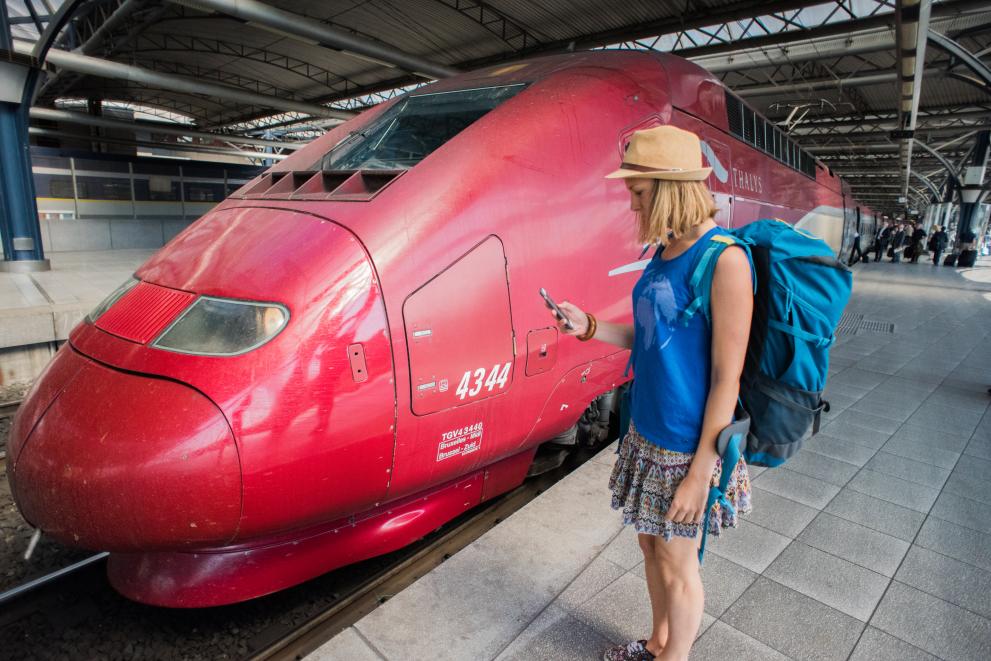
Travelling by train in Europe is becoming more convenient and sustainable thanks to recent EU initiatives. New regulations for the trans-European transport network (TEN-T) to improve rail connectivity and make travel greener have recently entered into force. This means better and more efficient rail services across Europe .
The EU's Action Plan to boost long-distance and cross-border passenger rail services is a key part of these efforts. It aims to double high-speed rail traffic by 2030 and triple it by 2050 . Launched in 2021, this plan focuses on removing obstacles, improving interoperability, modernising passenger rail infrastructure, and enhancing the quality of services across EU countries.
To further support cross-border travel, the European Commission has announced its support for 10 pilot projects to boost cross-border rail services . This will improve cross-border rail connections across the EU and make travel faster, easier and more affordable.
Young travellers can particularly benefit from the DiscoverEU programme, which regularly offers free travel passes to 18-year-olds to explore Europe by train . This programme encourages cultural exchange and highlights the environmental advantages of rail travel. The next call for applications should be published in autumn 2024.
Passenger rights are also a significant focus of the EU’s transport policy. Travellers in Europe are well-protected in case something goes wrong during their trip. EU passenger rights cover delays, cancellations, and accessibility issues.
The EU is committed to making train travel a top choice by improving regulations, creating ambitious plans, and supporting special programmes. These efforts aim to make rail travel more sustainable, efficient, and well-connected across Europe.
For more information
An Action Plan to boost long-distance and cross-border passenger rail services
Connecting Europe by train: 10 EU pilot services to boost cross-border rail
Mobility strategy
Know your EU passenger rights before you travel
Rail passenger rights
Travelling in Europe 2024
Share this page
Snooty waiters. Gripes about the language. Has Olympics made Paris more tourist-friendly?
PARIS — The snooty waiter. The stubborn, maybe even insulting, corner store owner who gripes about a visitor's inability to speak the language. The criminal cab fare.
All big cities − New York, London, Beijing − can feel isolating, unfriendly and put a large dent in an unsuspecting visitor's wallet. Fairly or not, Paris gets a bad rap in the tourist stakes.
"Any city that gets a lot of tourists (like Paris) is at some point going to get a reputation for not being so great with tourists," was how American Jeremy Goldstein, 56, a salesman in the audio dubbing business, put it.
"I've definitely encountered the waiters who don't smile, don't give you the best service. I also have French friends who've encountered the same things," said Goldstein, who's lived in Paris for 25 years.
'Cronut, crookie, cruffin': Franken-pastries invade Paris Olympics. Simone Biles is a fan
2024 Paris Olympics: Follow USA TODAY’s coverage of the biggest names and stories of the Games.
Paris Olympics opened with opulence: It kept going
Still, has hosting the Summer Olympics shifted the French capital's reputation for rudeness?
For a start, the Games have done what almost no one, Parisians included, thought possible.
It's stopped them grumbling.
"Something very odd is happening in France," wrote The Economist magazine's longtime Paris correspondent Sophie Pedder on X, the social media platform, on Aug 2.
"Olympic success, and awe at the way Paris is hosting the games, are teaching the French to cheer again and forget their messy divisive politics. The country feels all the better for it."
Another journalist, Michael Rose of the Reuters news agency, agreed.
"Paris has turned into a giant amusement park, even outside Olympic venues. Haven’t seen the city so carefree and happy in a long time," Rose posted on X, the day before Pedder.
➤ Get Olympics updates in your texts! Join USA TODAY Sports' WhatsApp Channel
French swimmer Léon Marchard helps lift national mood
Some of that success, awe and carefreeness can be attributed to Léon Marchand , a 22-year-old French swimmer who has won four gold medals and a bronze, almost single-handedly lifting the national mood.
Marchand is cheered everywhere he goes, is the talk of every bar and whenever he appears crowds erupt into spontaneous renditions of “La Marseillaise," France's national anthem, replacing parts of it with a pun on his name.
“The whole country is united in the stunned and incredulous contemplation of this champion who came from nowhere,” wrote the Midi Libre , a French daily newspaper, recently.
Yet it's not just the media that's noticed that the French, not all of them anyway, are not behaving to type.
"They've been so great with us," said Vinicius Berghan, 35, a Brazilian marketing executive, Monday as he was leaving a large park in northeast Paris where some countries have set up Olympic watch parties in so-called hospitality houses to showcase their nations' food, music and culture.
Berghan was with his friend Cassio Sviadowski, a lawyer, also 36 and from Brazil.
"Nothing bad," was Sviadowski's chipped-in assessment of the Games' French hosts.
"The parties have been great," he add. "And the food."
She's a basketball star: She wears a hijab. So she's barred from France's Olympics team
Tourists from Mexico, Poland, Peru, the Netherlands, Italy, Japan, Germany, the U.S. and elsewhere shared similar experiences of good times without having to weather disgruntled locals. If the French can be cold and standoffish to tourists, a charge that may be more an accumulation of travelers' urban myths and insecurities over not speaking the language than anything real or measurable, then it doesn't seem like sports fans at the Olympics have noticed.
There have also been some reports that contrary to expectations, French restaurants and hotels have been lowering prices to attract business because so many Parisians decided to flee the city for the duration of the Games. Although tourists have still had to pay almost twice the usual price for metro tickets during the Olympics.
In one sign of France's free-and-easy attitude toward the Games, President Emmanuel Macron has spent the majority of them vacationing at his Mediterranean home in southern France.He has made periodic trips back to Paris, and is expected to attend the closing ceremony on Aug. 11, but Macron's temporarily put to one side a political crisis that engulfed his government in the weeks before the Games in the same way that Parisians have appeared to mothball any animosity toward tourists.
Hospitality campaign may have softened Parisian attitude
This newfound friendliness toward the foreign tourist may not be entirely accidental.
In the run-up to the Olympics, the Paris region's chamber of commerce unveiled an updated hospitality campaign called "Do You Speak Touriste?" The 30-page official guide was designed, it said, to help French hospitality professionals welcome international tourists and navigate some common cultural pitfalls.
One of the guide's reminders was that while it's culturally acceptable in France to "openly show one’s emotions, through one’s gestures or tone of voice," in other countries "disagreement is expressed a lot less openly."
The authors of the "Do You Speak Touriste?" guide appeared to realize that the storied language of love, alluring as it may be to some, has a lawless dark side that can strike fear into whatever the opposite of a Francophone is.
One place that certainly appears to have gotten the memo is Au Pied de Cochon, a cafe and restaurant close to Les Halles shopping area and the Louvre Museum, two staples of any Paris itinerary for many visitors to France's capital.
Au Pied de Cochon is every inch the traditional French brasserie.
The ceilings are high, the floors tiled and the mirrors large. The walls are peppered with vintage posters. Its menu is full of classic French dishes like coq au vin, moules frites, steak tartare and onion soup. Outside on a terrace that spills onto the street, Au Pied de Cochon's customers sit, in ones and twos, in rattan chairs around small tables.
Au Pied de Cochon's male waiters don't quite wear black pants, vest, white shirt and bow tie. They aren't far off.
Inside, Sandra Neheust, 50, Au Pied de Cochon's general manager, said that she had instructed her wait staff during the Olympics to "show the French touch" − to put on the "best possible face" for tourists.
She said it wasn't that her waiters were outright rude but sometimes their manner could depend on "how much sleep they got the night before." And she said tourists, American ones especially, often give as much as they get.
One possible case study: Serena Williams , a Paris restaurant and being "denied access" to a rooftop dining spot.
"They come to us when they are tired and starving hungry and they aren't thinking rationally - it gets a bit emotional sometimes," she said. "I think they are here to discover," Neheust said of American tourists who don't speak French.
Was this an insult? Hard to say.
Frederica Certutti, 34, an Italian banker who was leaving the same Olympic hospitality event Monday as Brazilians Berghan and Sviadowski, laughed when asked if she had any stories of bad behavior from the French.
"I live here," she said. "I'm used to them."
Follow Kim Hjelmgaard on social media @khjelmgaard ; Mackenzie Salmon @mackenziesalmon
The USA TODAY app gets you to the heart of the news — fast. Download for award-winning coverage, crosswords, audio storytelling, the eNewspaper and more.

An official website of the United States government
Here's how you know
The .gov means it’s official. Federal government websites often end in .gov or .mil. Before sharing sensitive information, make sure you’re on a federal government site.
The site is secure. A lock ( ) or https:// ensures that you are connecting to the official website and that any information you provide is encrypted and transmitted securely.
Keyboard Navigation
- Agriculture and Food Security
- Anti-Corruption
- Conflict Prevention and Stabilization
- Democracy, Human Rights, and Governance
- Economic Growth and Trade
- Environment, Energy, and Infrastructure
- Gender Equality and Women's Empowerment
- Global Health
- Humanitarian Assistance
- Innovation, Technology, and Research
- Water and Sanitation
- Burkina Faso
- Central Africa Regional
- Central African Republic
- Côte d’Ivoire
- Democratic Republic of the Congo
- East Africa Regional
- Power Africa
- Republic of the Congo
- Sahel Regional
- Sierra Leone
- South Africa
- South Sudan
- Southern Africa Regional
- West Africa Regional
- Afghanistan
- Central Asia Regional
- Indo-Pacific
- Kyrgyz Republic
- Pacific Islands
- Philippines
- Regional Development Mission for Asia
- Timor-Leste
- Turkmenistan
- Bosnia and Herzegovina
- North Macedonia
- Central America and Mexico Regional Program
- Dominican Republic
- Eastern and Southern Caribbean
- El Salvador
- Middle East Regional Platform
- West Bank and Gaza
- Dollars to Results
- Data Resources
- Strategy & Planning
- Budget & Spending
- Performance and Financial Reporting
- FY 2023 Agency Financial Report
- Records and Reports
- Budget Justification
- Our Commitment to Transparency
- Policy and Strategy
- How to Work with USAID
- Find a Funding Opportunity
- Organizations That Work With USAID
- Resources for Partners
- Get involved
- Business Forecast
- Safeguarding and Compliance
- Diversity, Equity, Inclusion, and Accessibility
- Mission, Vision and Values
- News & Information
- Operational Policy (ADS)
- Organization
- Stay Connected
- USAID History
- Video Library
- Coordinators
- Nondiscrimination Notice and Civil Rights
- Collective Bargaining Agreements
- Disabilities Employment Program
- Federal Employee Viewpoint Survey
- Reasonable Accommodations
- Urgent Hiring Needs
- Vacancy Announcements
- Search Search Search
MOES Accelerates Literacy Efforts by Launching the first Lao Language Children’s Book Catalog
For Immediate Release
Press Release
Vientiane Capital, August 12, 2024 — To enhance children’s literacy, the Ministry of Education and Sports (MOES), with support from the United States Agency for International Development (USAID), successfully launched the first Lao Language Children’s Book Catalog and a corresponding National Children’s Book Review Report. The development of the Catalog, a strong collaboration between MOES, the Ministry of Information, Culture, and Tourism, the Lao Board on Books for Young People, and the USAID-funded Learn to Read project, marks a significant milestone for literacy in Lao PDR.
The event was attended by Assoc. Prof. Dr. Silinthone Sacklokham, Director General of International Cooperation Department, Ministry of Education and Sports, and Ms. Phetviengkhone Sayasane, USAID’s Senior Education Specialist, Ms. Norkham Souphanouvong, Room to Read’s Country Director, and Mr. Kamal Hossain, Learn to Read’s Chief of Party. The Catalog is designed to be a helpful resource for government officials, educators, librarians, communities, and families, offering a comprehensive list of MOES-approved children’s books to inform and streamline book purchasing. Local publishers’ works are also showcased, promoting the growth of the local publishing industry.
The interactive workshop featured a detailed presentation of the Children’s Book Catalog, which lists the books by grade level and genre and includes a brief synopsis. Assoc. Prof. Dr. Silinthone noted that a core feature of the Catalog is inclusivity. The 594 children's books listed in the Catalog reflect diverse characters and cultural backgrounds to ensure that the selected books resonate with all children in Laos.
The workshop also shared key findings from the National Children’s Book Review Report, highlighting key areas for growth in the children’s book publishing sector, including the importance of creating more children’s non-fiction and folklore titles.
Ms. Phetviengkhone encouraged the participants to explore the Catalog, share it widely, and contribute to its ongoing impact. The workshop provided an opportunity for attendees to discuss efforts to ensure the Catalog’s widespread use and sustainability.
The Catalog is now available for public use. The USAID Learn to Read project will continue to support the Government of Laos’s efforts to update and expand the Catalog to ensure it remains a useful, relevant resource.
Follow us on Facebook here and view more photos here

Related Press Releases
Moes intensifies efforts in inclusive education by launching the inclusive education strategy 2030.
- August 6, 2024
United States Provides Grade 1 and Grade 2 Textbooks Nationwide to Lao PDR
- March 1, 2024
United States Expands Assistance to Promote Literacy in Lao PDR
- November 3, 2023
Deputy Administrator Isobel Coleman Travels to Laos
- May 16, 2022
Share This Page

IMAGES
COMMENTS
This simple Catalan travel phrase guide includes a free infographic with useful Catalan phrases and a simple pronunciation guide to take with you in your travels. Catalonia, located in Spain's northeast corner, might be part of Spain, but that doesn't mean you should speak Spanish. Catalonia has its own language, called Catalan, which I ...
Whether you're an expat who once came to Catalonia and never left (ohh aren't we lovely), or a tourist who's visiting Barcelona and its surroundings for just a few days, Catalan people will love to hear you speaking - or at least trying - some Catalan. Here are some of the most useful Catalan words, phrases, and expressions that will help you get started.
The word espanyol exists (Catalan ny is equivalent to Spanish ñ), but it's more common to hear the language called castellà. Both Catalan and Spanish are descendants of Latin that developed in the area that is now Spain; Catalan in Catalonia and surroundings ("the Catalan countries") and "Spanish" in Castile, hence castellà ...
Catalan is a Romance language spoken mainly in the Catalonia region of northeastern Spain, as well as parts of France, the Balearic Islands and Valencia. It is also used by Catalan-speaking communities around the world. Catalan is of Vulgar Latin origin and shares similarities with other Romance languages such as Spanish, French and Italian.
Discover the history behind Catalonia's unique language, and learn 11 essential Catalan phrases that every traveler should know. ... and sharing a bit about yourself will only make you feel more comfortable wherever you travel. Don't let a language barrier stop you. These few Catalan phrases can help start a conversation with any shop owner ...
Essential Catalan phrases; 50+ essential Catalan phrases you need to know Catalan (Català) is widely spoken within the Spanish region of Catalonia, and also Valencia and the Balearic Islands (Majorca, Menorca, Ibiza and Formentera). On paper it looks like a cross between French and Spanish and is generally easy to read if you know those two ...
The native language of Catalonia is Catalan. But everyone will speak Spanish and you'll have no problem speaking it. But just in case we've included a Catalan translation alongside the 50 Spanish phrases below. If you're interested in enhancing your stay then don't forget to check our guided Barcelona tours here.
Catalan is an entirely separate language to Castilian Spanish, and not just a separate dialect as many assume. It is spoken by around 9.5 million people: as well as 6 million speakers from Catalonia, 2.5 million Valencians speak a regional version of the language, whilst Catalan is also the preferred tongue of residents of the Balearic Islands ...
As we explore travel phrases in Catalan, it's important to dive into the cultural aspects related to travel and transportation in Catalan-speaking regions. Catalonia, a region in northeastern Spain, is known for its rich history, vibrant culture, and stunning landscapes. The region is home to bustling cities like Barcelona, as well as charming ...
Catalan, which is spoken by a majority of people in Catalonia, is a Romance language with its own unique vocabulary, grammar, and pronunciation. While many people in Barcelona also speak Spanish, Catalan is the primary language used in the region and it's a good idea to learn a few phrases to show respect for the local culture and to make ...
Bon dia (bon dee-ah) / Bona tarda (bon-ah tard-ah) Good morning / Good afternoon. When strolling along the streets of Barcelona, you'll definitely hear this phrase used again and again. Put a smile on any local's face with this common greeting (used more than "hola"). Remember, the afternoon starts around lunchtime and lasts all the way ...
One of the four official languages of Spain, Catalan is spoken in various dialects across Catalunya, Valencia and the Balearic Islands.Given the geographic origin of Catalan, which occupies a large Mediterranean area and a portion of the Iberian peninsula that rubs shoulders with France, the language shares many similar words with other romantic languages, including Italian, French and Portuguese.
Yeah, Catalan is a special language and some might even say that it has more similarities to French than Spanish. And, again, it would be very incorrect to call it a dialect of Spanish, even if it is used in the Catalonia region of Spain. Catalan is a language, a language that appeared between the 8th and 10th centuries.
Useful Catalan phrases. A collection of useful phrases in Catalan, a Romance language spoken mainly in Spain, Andorra and France, with audio recordings for most of them. Guide to abbreviations: inf = informal, frm = formal, sg = singular (to one person), pl = plural (to two or more people), >m = said to men, >f = said to women Jump to phrases ...
Déu n'hi do! One of the most curious Catalan expressions, ' Déu n'hi do' is used almost exclusively in Catalunya although few people know its precise origin. Literally meaning something along the lines of 'God gave it', the phrase is actually used to express amazement and can be translated as 'wow' or 'amazing'.
Catalan (Català), spoken in Catalonia, Valencia (where it is called Valencià), Balearic Islands (where it is sometimes called Mallorquí Menorquí, or Eivissenc in each of the islands), Aragon (at eastern strip), Andorra (where it is the only official language), the south of France (north Catalonia, corresponding more or less to the Pyrénées-Orientales department ...
Welcome to our seventh lesson about popular Catalan phrases. This page will include greetings, questions, emergency and survival expressions, asking for direction, language practice, introducing yourself, holiday wishes, and finally some travel phrases. Holiday Wishes - Catalan. Happy birthday bon aniversari!/ per molts d'anys!
A traveler's cheat sheet on how to say the basics and ask important questions in Catalan, the language of Barcelona. Catalan—the language spoken in Barcelona and the rest of Spain's Catalonia region, as well as on the Balearic Islands (Ibiza, Majorca, etc.) and in Valencia—is not Spanish, nor is it a dialect of Spanish.It is its own langauge (though it is still a Romance language, so it ...
I f the three Spanish regions where the Catalan language is spoken suddenly became independent from Spain, the resulting country would instantly turn into one of the world's top-10 tourist destinations. In 2019, almost 43 million international travelers made it to the Mediterranean-washed shores of Catalonia, the Valencian Region, and the Balearic Islands.
Here are a few Catalan phrases and words you can use when talking to local residents in Barcelona. Gràcies - Catalan - thank you. Moltes gràcies - Catalan - Many thanks. Bon Dia! - Catalan - mean good day or hello. Bona tarda - Catalan - good afternoon. Bona nit - Catalan - good evening.
1. Hola! Pronunciation: OH-la. This is the easiest and most useful word when visiting Barcelona. Hola means hello and is the simplest way to salute people you will come across during your visit here. When saying hola, people reply with the same word alongside good morning/afternoon or asking you how are you doing today.
If you're thinking about a holiday in Catalunya then you may like to consider one of our stunning luxury villas to stay in. Below is a brief selection of what's available, but if you'd like to see the entire range please Click Here. Mas d'en Cholvi - 6 Bedrooms, Sleeps 9 - 12, 3 Bathrooms. This beautifully converted 'masia' commands wonderful views across the river valley ...
Sí - Yes. No - No. Si us plau - Please. Gràcies - Thank you. De res - You're welcome. Perdoni - Excuse me. Ho sento - Sorry. Adéu - Goodbye. These are mostly one-word or very short phrases that you'll come across early in your language-learning journey.
Story by Dylan Lyons • 5mo 5mo. 1 / 12 ©Lorado/istockphoto
A locked padlock) or https:// means you've safely connected to the .gov website. Share sensitive information only on official, secure websites.
[1] With respect to all references to "country" or "countries" in this document, it should be noted that the Taiwan Relations Act of 1979, Pub. L. No. 96-8, Section 4(b)(1), provides that "[w]henever the laws of the United States refer or relate to foreign countries, nations, states, governments, or similar entities, such terms shall include and such laws shall apply with respect to Taiwan."
Four Points Express by Sheraton Nagoya Station. 3-16-8 Meieki, Nakamura-ku, Nagoya, Aichi, Japan, 450-0002
Travelling by train in Europe is becoming more convenient and sustainable thanks to recent EU initiatives. New regulations for the trans-European transport network (TEN-T) to improve rail connectivity and make travel greener have recently entered into force.This means better and more efficient rail services across Europe.. The EU's Action Plan to boost long-distance and cross-border passenger ...
PARIS — The snooty waiter. The stubborn, maybe even insulting, corner store owner who gripes about a visitor's inability to speak the language. The criminal cab fare. All big cities − New York ...
Vientiane Capital, August 12, 2024 — To enhance children's literacy, the Ministry of Education and Sports (MOES), with support from the United States Agency for International Development (USAID), successfully launched the first Lao Language Children's Book Catalog and a corresponding National Children's Book Review Report. The development of the Catalog, a strong collaboration between ...